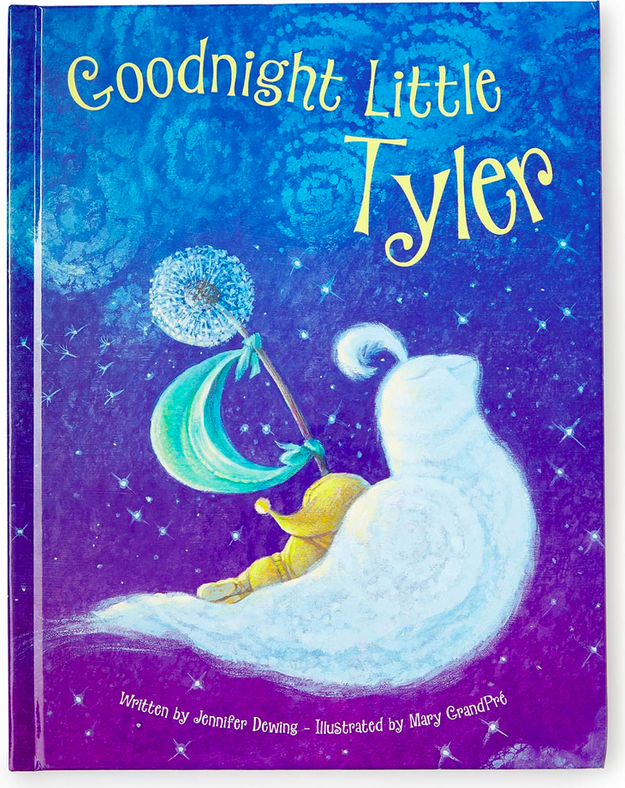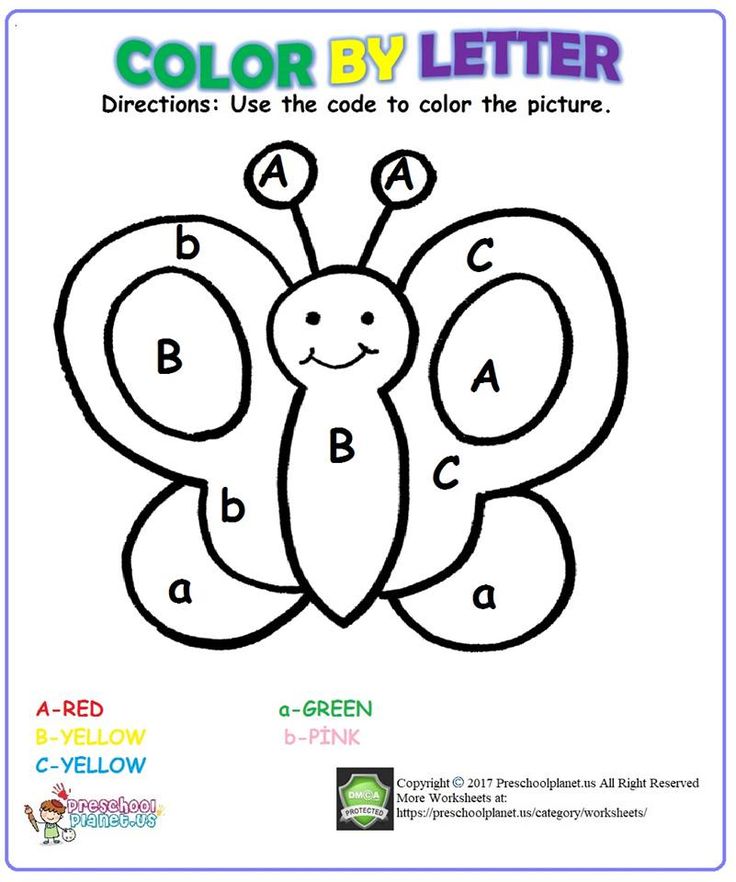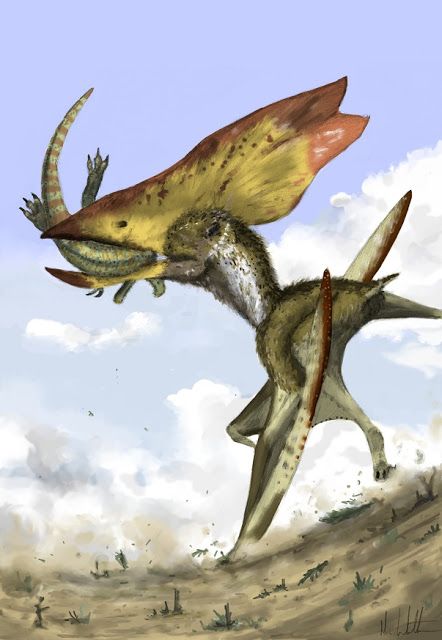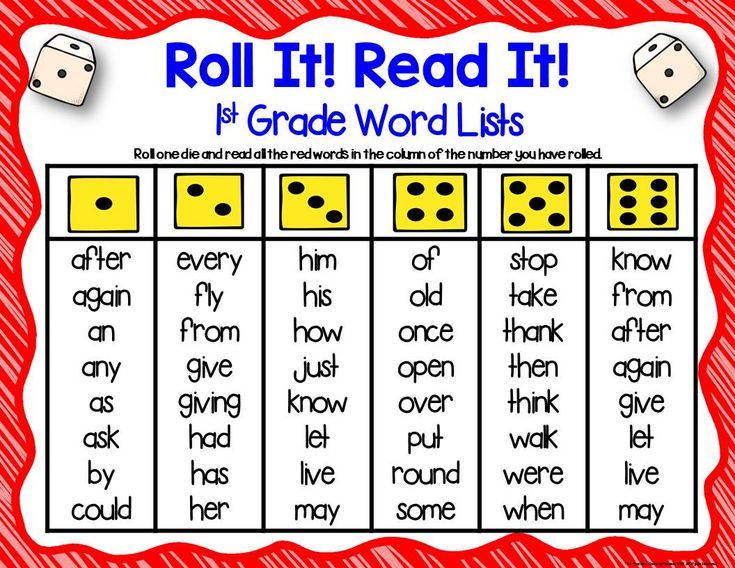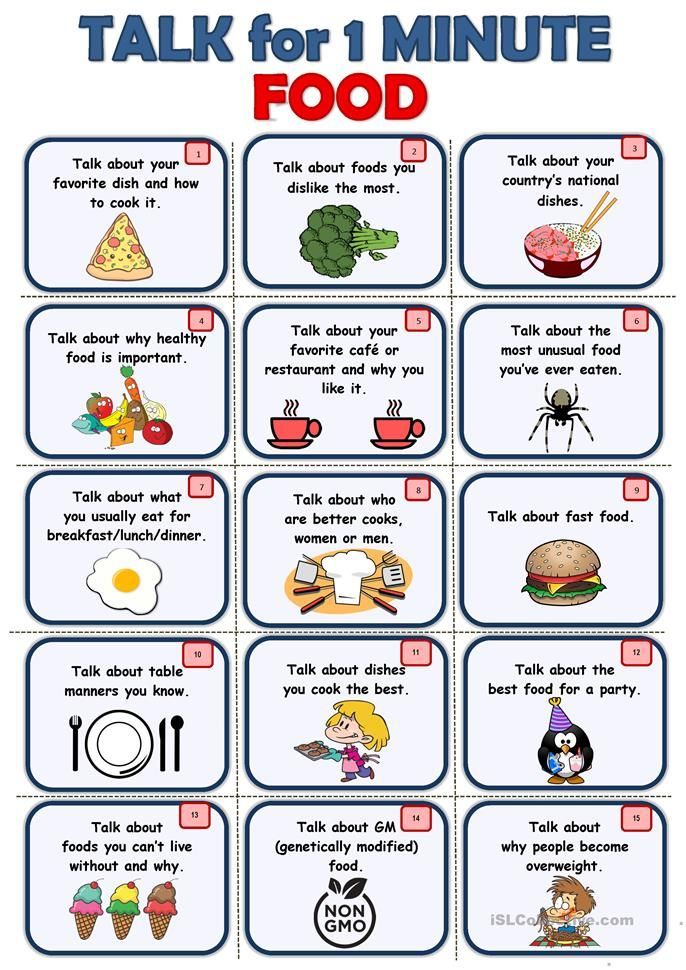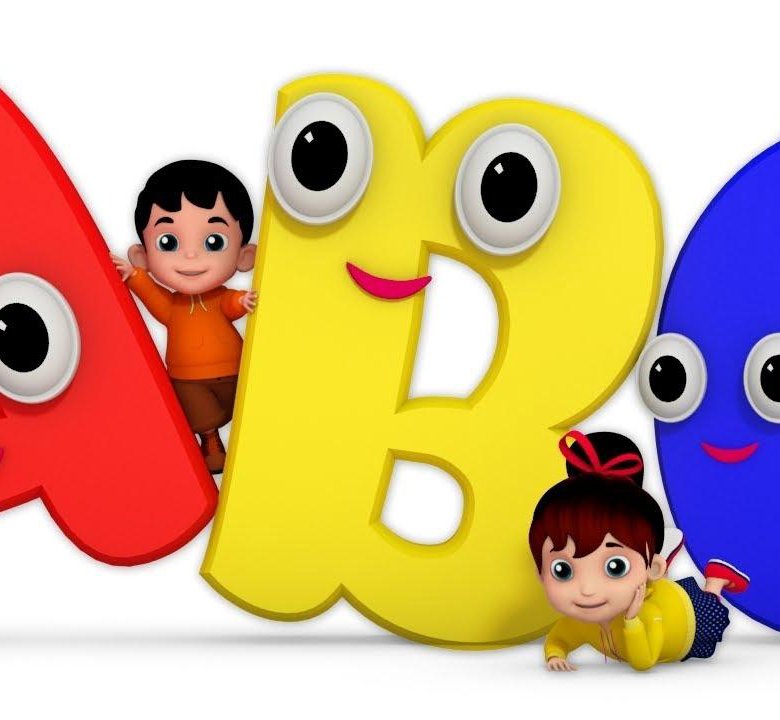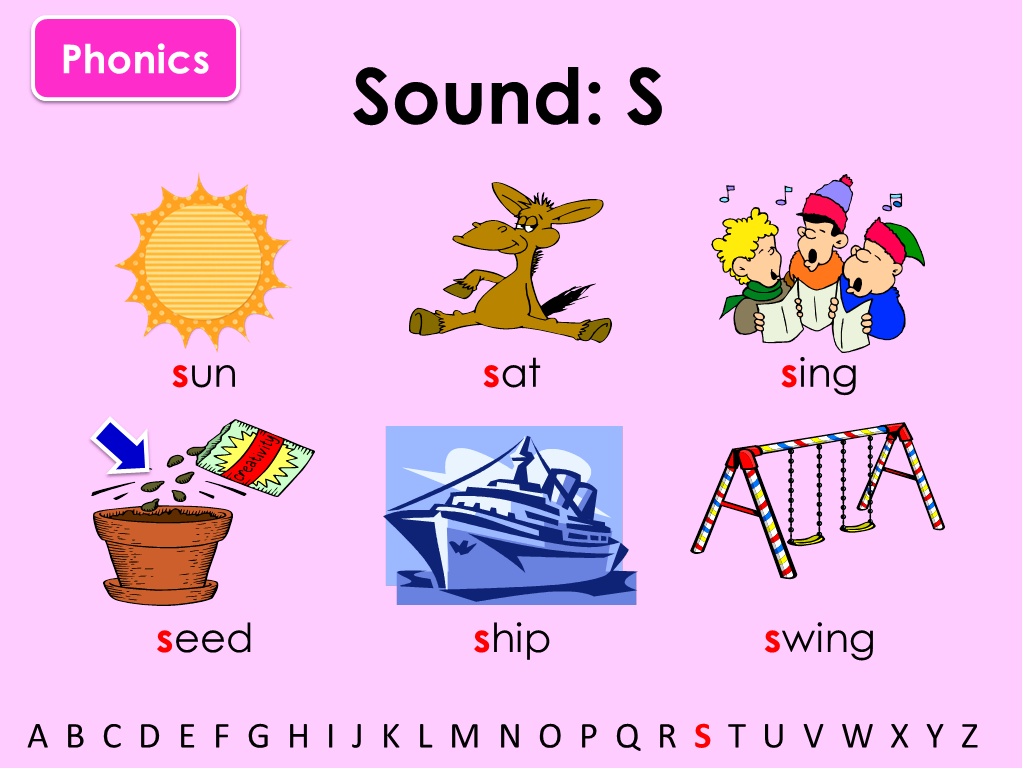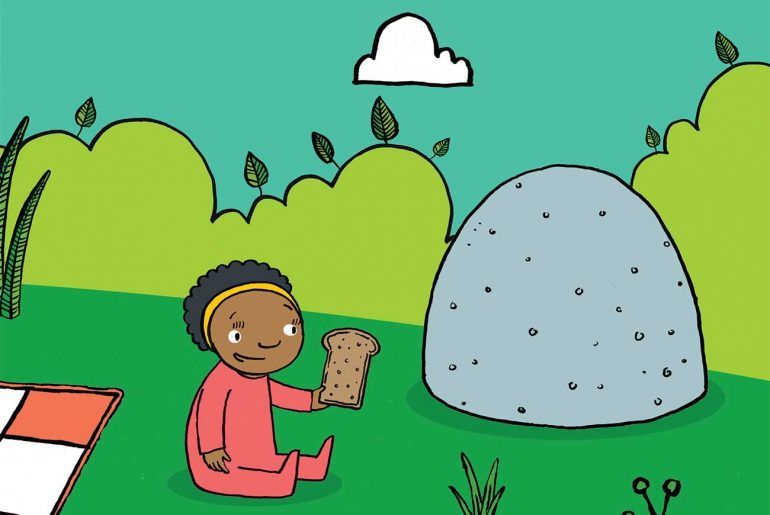Short tongue twisters in english
Perfect Your Pronunciation With These 100 English Tongue Twisters
Diana Lăpușneanu in Language Tips | August 23, 2019
Ready to have a laugh and twist your tongue into a knot?
Tongue twisters of all sorts and sizes have been helping people to perfect their pronunciation in English for decades. Although they don’t make a lot of sense, tongue twisters are very helpful in speech therapy due to their repeated sounds. For this reason, they are used by actors, politicians and even news anchors before going live. Essentially, a tongue twister works like a physical exercise: the more you practice, the better your pronunciation will be.
According to the Cambridge Dictionary, a tongue twister is
“a sentence or phrase that is intended to be difficult to say, especially when repeated quickly and often”. If you too want to improve or perfect your English pronunciation, dive into the complete list of English tongue twisters listed below: from short tongue twisters to tongue twisters for kids and hard tongue twisters to further challenge your pronunciation.
- Short tongue twisters
- Long tongue twisters
- Hard tongue twister
- Tongue twisters for kids
- Funny tongue twisters
- Tongue twisters with S, R, L and TH
- Learn a language in 5 minutes a day
Before trying the hard English tongue twisters for champions who talk fast, let’s warm up your speech muscles with some short and fairly easy tongue twisters for beginners.
- Eleven benevolent elephants.
- She sees cheese.
- Six sticky skeletons.
- Truly rural.
- Each Easter Eddie eats eighty Easter eggs.
- Which witch is which?
- Willy’s real rear wheel.
- Send toast to ten tense stout saints’ ten tall tents.
- Six sleek swans swam swiftly southwards.
- Scissors sizzle, thistles sizzle.
- A happy hippo hopped and hiccupped.
- English can be understood through tough thorough thought, though.

- Cooks cook cupcakes quickly.
- Really leery, rarely Larry.
- Twelve twins twirled twelve twigs.
- A snake sneaks to seek a snack.
- I like New York, unique New York, I like unique New York.
- Six Czech cricket critics.
- Babbling baby boys blurted boldly.
- Which wrist watches are Swiss wrist watches?
- How can a clam cram in a clean cream can?
- An ape hates grape cakes.
- Fred fed Ted bread and Ted fed Fred bread.
- I saw a kitten eating chicken in the kitchen.
- Can you can a can as a canner can can a can?
- Imagine an imaginary menagerie manager managing an imaginary menagerie.
- She sells seashells by the seashore.
- Gobbling gargoyles gobbled gobbling goblins.
- Nine nice night nurses nursing nicely.
- Billy Bob blabbered boldly.
When it comes to long tongue twisters and talking fast, we can’t help but think about Eminem.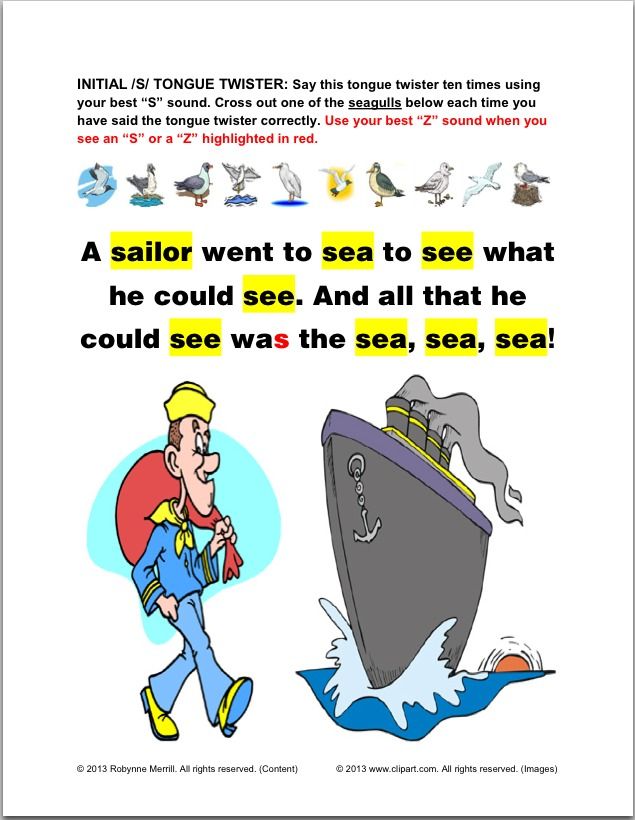 Did you know that he raps with a whopping speed of 11.4 syllables per second in his song “Rap God”? We don’t know much about rap, but that sure sounds like something only the God of Rap could do.
Did you know that he raps with a whopping speed of 11.4 syllables per second in his song “Rap God”? We don’t know much about rap, but that sure sounds like something only the God of Rap could do.
But Eminem’s songs and long tongue twisters are challenging for those who are not ready for long runs. Are you? Can you defeat Eminem? Let’s find out. Take a deep breath and try saying the following tongue twister without stopping.
- All I want is a proper cup of coffee.
Made in a proper copper coffee pot.
You can believe it or not.
But I want a cup of coffee from a proper copper pot.
Tin coffee pots or iron coffee pots, they’re not good to me.
If I can’t have a proper cup of coffee from a proper copper coffee pot, I’ll just have tea.
All I want is a proper cup of coffee.
Made in a proper copper coffee pot.
You can believe it or not.
But I want a cup of coffee from a proper copper pot. - To sit in solemn silence in a dull, dark dock,
In a pestilential prison, with a life-long lock,
Awaiting the sensation of a short, sharp shock,
From a cheap and chippy chopper on a big black block!
To sit in solemn silence in a dull, dark dock,
In a pestilential prison, with a life-long lock,
Awaiting the sensation of a short, sharp shock,
From a cheap and chippy chopper on a big black block!
A dull, dark dock, a life-long lock,
A short, sharp shock, a big black block!
To sit in solemn silence in a pestilential prison,
And awaiting the sensation
From a cheap and chippy chopper on a big black block! - Betty Botter bought some butter but, said she, the butter’s bitter.
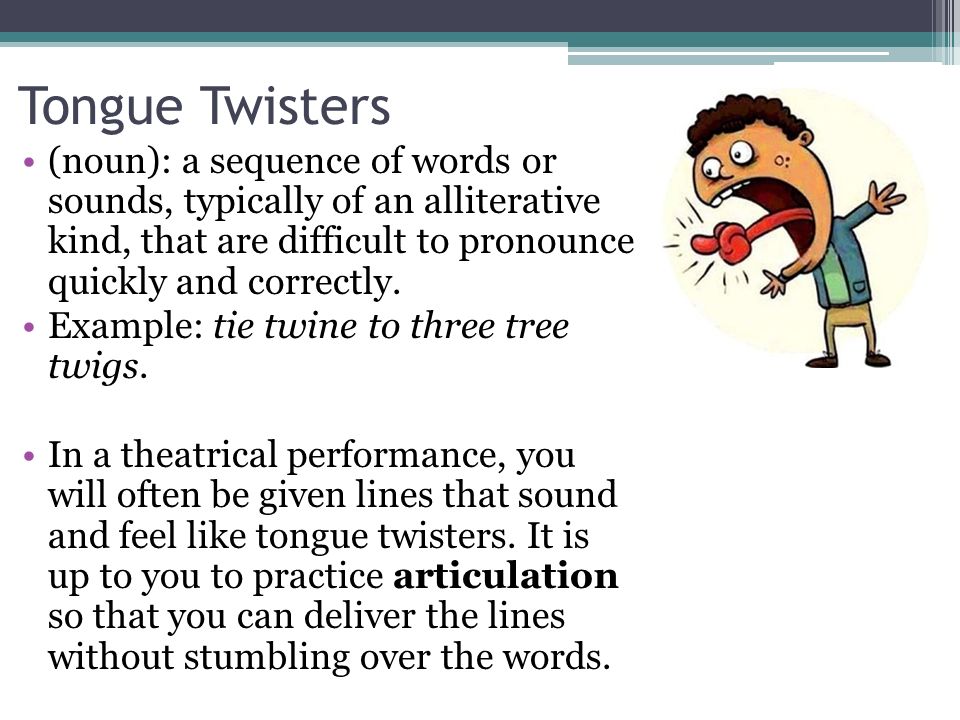
If I put it in my batter, it will make my batter bitter.
But a bit of better butter will make my bitter batter better.
So she bought some better butter, better than the bitter butter,
put it in her bitter batter, made her bitter batter better.
So ‘t was better Betty Botter bought some better butter. - I’m a mother pheasant plucker, I pluck mother pheasants.
I’m the most pleasant mother pheasant plucker to ever pluck a mother pheasant.
I’m not the pheasant plucker I’m the pheasant plucker’s wife, I’ve been plucking Mother pheasants my whole pheasant plucking life.
I’m not the pheasant plucker I’m the pheasant plucker’s mate, I’m only plucking Pheasants ’cause the pheasant plucker’s late. - A tree-toad loved a she-toad
Who lived up in a tree.
He was a two-toed tree-toad,
But a three-toed toad was she.
The two-toed tree-toad tried to win
The three-toed she-toad’s heart,
For the two-toed tree-toad loved the ground
That the three-toed tree-toad trod.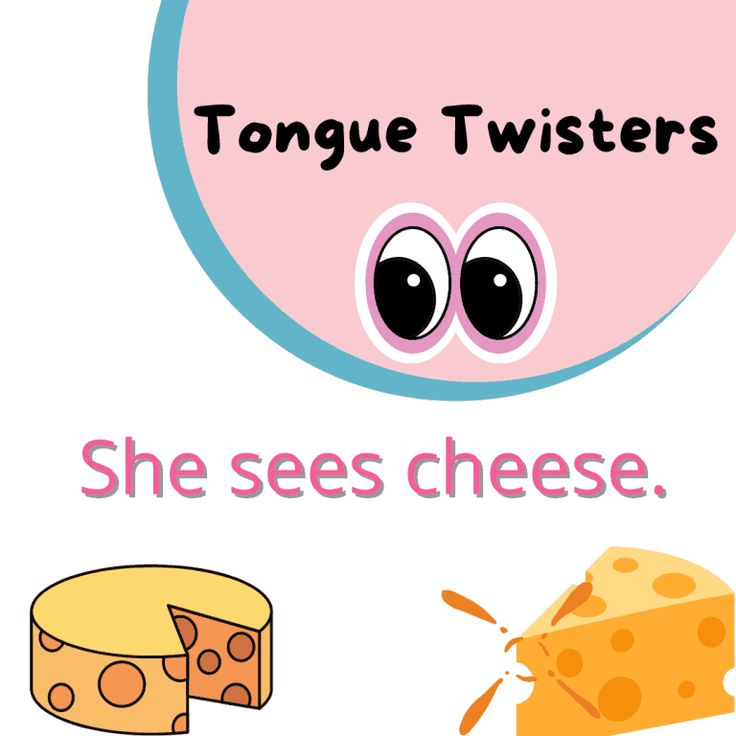
But the two-toed tree-toad tried in vain;
He couldn’t please her whim.
From her tree-toad bower,
With her three-toed power,
The she-toad vetoed him.
- Mr. See owned a saw.
And Mr. Soar owned a seesaw.
Now, See’s saw sawed Soar’s seesaw
Before Soar saw See,
Which made Soar sore.
Had Soar seen See’s saw
Before See sawed Soar’s seesaw,
See’s saw would not have sawed
Soar’s seesaw.
So See’s saw sawed Soar’s seesaw.
But it was sad to see Soar so sore
just because See’s saw sawed
Soar’s seesaw. - Ned Nott was shot and Sam Shott was not.
So it is better to be Shott than Nott.
Some say Nott was not shot.
But Shott says he shot Nott.
Either the shot Shott shot at Nott was not shot,
Or Nott was shot.
If the shot Shott shot shot Nott, Nott was shot.
But if the shot Shott shot shot Shott,
Then Shott was shot, not Nott.
However, the shot Shott shot shot not Shott, but Nott.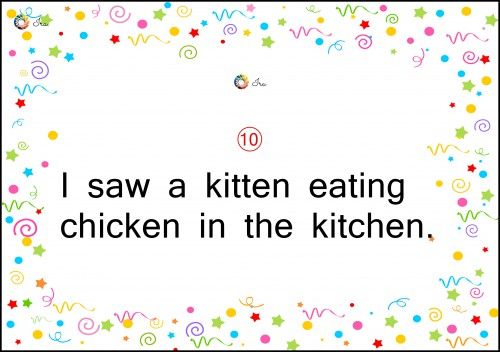
- Theophilus Thistle, the Thistle Sifter,
Sifted a sieve of unsifted thistles.
If Theophilus Thistle, the Thistle Sifter,
Sifted a sieve of unsifted thistles,
Where is the sieve of un-sifted thistles
Theophilus Thistle, the Thistle Sifter, sifted? - A flea and a fly in a flue
Said the fly “Oh what should we do”
Said the flea” Let us fly
Said the fly “Let us flee”
So they flew through a flaw in the flue. - Of all the felt I ever felt,
I never felt a piece of felt
which felt as fine as that felt felt,
when first I felt that felt hat’s felt.
While we’re at it, we can help but wonder what the hardest tongue twister in existence is. Contrary to popular belief, it’s not supercalifragilisticexpialidocious.
At one point, “the sixth sick sheikh’s sixth sheep’s sick” held the Guinness World Record for the hardest twister, but since the category no longer exists, the title was probably revoked.
Don’t worry though! We are not running out of options. In 2013, MIT researchers concluded that “pad kid poured curd pulled cod” is the hardest tongue twister in the world. In fact, Stefanie Shattuck-Hufnagel, an MIT psychologist, says you will get a prize if you manage to say that 10 times quickly. And not any kind of “quickly”. We’re talking super-sonic-Eminem-quickly!
- Pad kid poured curd pulled cod.
- If you must cross a course cross cow across a crowded cow crossing, cross the cross coarse cow across the crowded cow crossing carefully.
- Brisk brave brigadiers brandished broad bright blades, blunderbusses, and bludgeons — balancing them badly.
- Six sick hicks nick six slick bricks with picks and sticks.
- Can you can a canned can into an un-canned can like a canner can can a canned can into an un-canned can?
- The sixth sick sheikh’s sixth sheep’s sick.
- Rory the warrior and Roger the worrier were reared wrongly in a rural brewery.

- Ingenious iguanas improvising an intricate impromptu on impossibly-impractical instruments.
- I saw Susie sitting in a shoe shine shop
Where she shines, she sits, and where she sits, she shines. - When a doctor doctors a doctor, does the doctor doing the doctoring doctor as the doctor being doctored wants to be doctored or does the doctor doing the doctoring doctor as he wants to doctor?
- These thousand tricky tongue twisters trip thrillingly off the tongue.
- Thirty-three thirsty, thundering thoroughbreds thumped Mr. Thurber on Thursday.
- Brisk brave brigadiers brandished broad bright blades, blunderbusses, and bludgeons—balancing them badly.
- A skunk sat on a stump and thunk the stump stunk, but the stump thunk the skunk stunk.
- Give papa a cup of proper coffee in a copper coffee cup.
- He threw three free throws.
- Near an ear, a nearer ear, a nearly eerie ear.
- Many an anemone sees an enemy anemone.

- Chop shops stock chops.
Tongue twisters for kids are all sweet, fun, and games until you increase the speed. If you haven’t had enough training, even they can tie your tongue into a Gordian knot. Literally.
Take a little brother, sister, or your own kid, and let’s see who wins the challenge!
- Blue bluebird.
- Four fine fresh fish for you.
- Daddy Draws Doors.
- Three free throws.
- The big bug bit the little beetle.
- Friendly fleas and fireflies.
- Fresh fried fish.
- The raging ram runs ’round rugged Ricky to hit Mickey.
- Specific Pacific.
- Tommy tossed his twelfth tooth when it turned two times.
- Fred fed Ted bread and Ted fed Fred bread.
- Betty’s big bunny bobbled by the blueberry bush.
- Six sticky skeletons.
- Green glass globes glow greenly.
- Fuzzy Wuzzy was a bear.
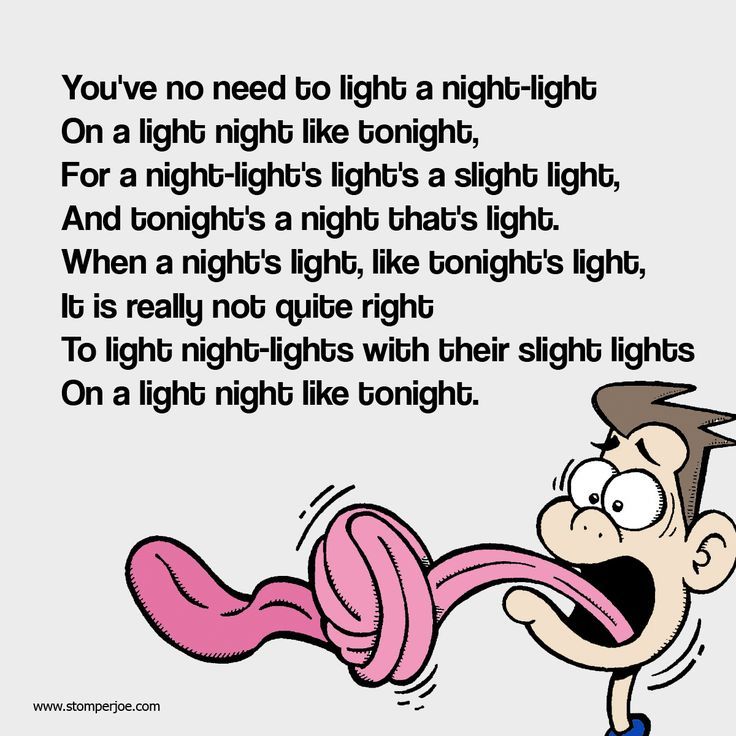 Fuzzy Wuzzy had no hair. Fuzzy Wuzzy wasn’t very fuzzy, was he?
Fuzzy Wuzzy had no hair. Fuzzy Wuzzy wasn’t very fuzzy, was he? - If a dog chews shoes, whose shoes does he choose?
- Rubber baby buggy bumpers.
- I scream, you scream,
We all scream for ice cream. - Bouncing bed bugs borrowed blankets.
- Perspicacious Polly Perkins purchased Peter’s product
And peddled pickles to produce a pretty profit!
Our all-time favorite: funny tongue twisters! You’d think all tongue twisters are funny, but nothing compares to this exclusive selection. In fact, you probably heard these ones before. Everybody calls them „funny” for a reason!
Don’t forget to challenge your friends!
- Peter Piper picked a peck of pickled peppers;
A peck of pickled peppers Peter Piper picked;
If Peter Piper picked a peck of pickled peppers,
Where’s the peck of pickled peppers Peter Piper picked. - How much wood would a woodchuck chuck
if a woodchuck could chuck wood?
He would chuck, he would, as much as he could,
and chuck as much wood as a woodchuck would
if a woodchuck could chuck wood.
- She sells seashells on the seashore.
The shells she sells are seashells, I’m sure.
And if she sells seashells on the seashore,
Then I’m sure she sells seashore shells. - Birdie birdie in the sky laid a turdie in my eye.
If cows could fly I’d have a cow pie in my eye. - How much ground would a groundhog hog, if a groundhog could hog ground? A groundhog would hog all the ground he could hog, if a groundhog could hog ground.
- Yellow butter, purple jelly, red jam, black bread.
Spread it thick, say it quick!
Yellow butter, purple jelly, red jam, black bread.
Spread it thicker, say it quicker!
Yellow butter, purple jelly, red jam, black bread.
Don’t eat with your mouth full! - I slit the sheet, the sheet I slit, and on the slitted sheet I sit.
- Luke Luck likes lakes.
Luke’s duck likes lakes.
Luke Luck licks lakes.
Luck’s duck licks lakes.
Duck takes licks in lakes Luke Luck likes.
Luke Luck takes licks in lakes duck likes.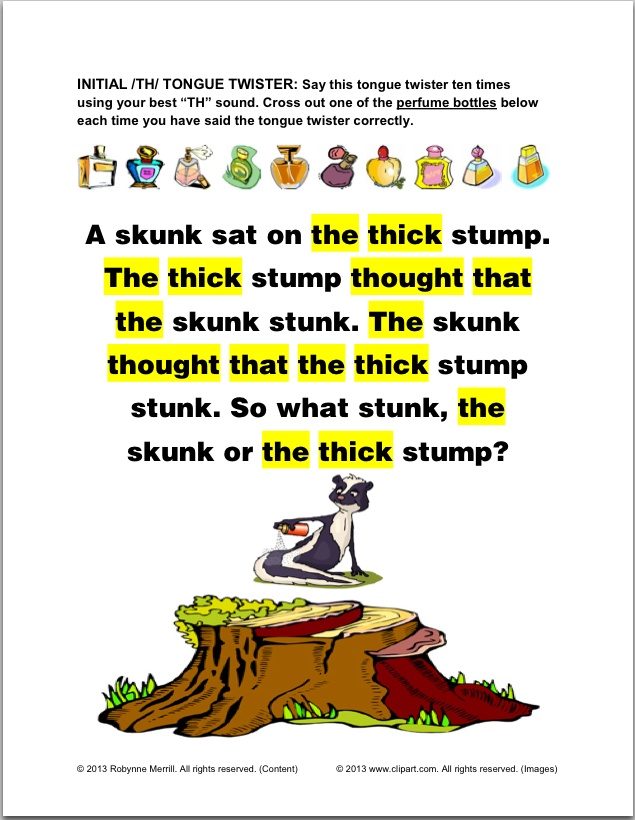
Tongue twisters with S, R, L and TH
As we already mentioned, tongue twisters can be extremely helpful for speech therapy. If you are having problems pronouncing certain sounds like “s”, “r”, “l” or “th”, practicing with the right tongue twisters can ameliorate your speech impediment. Here are a few examples:
Tongue twisters with S
- She sells seashells by the seashore of Seychelles.
- “Surely Sylvia swims!” shrieked Sammy surprised. “Someone should show Sylvia some strokes so she shall not sink.”
- Selfish shellfish. (repeat it several times)
Tongue twisters with R and L
- Red lorry, yellow lorry.
- A really leery Larry rolls readily to the road.
- Rory’s lawn rake rarely rakes really right.
- Lucky rabbits like to cause a ruckus.
- I looked right at Larry’s rally and left in a hurry.
- Round and round the rugged rocks the ragged rascal ran.

Tongue twisters with TH
- The thirty-three thieves thought that they thrilled the throne throughout Thursday.
- I thought a thought.
But the thought I thought
Wasn’t the thought I thought I thought.
If the thought I thought I thought,
Had been the thought I thought,
I wouldn’t have thought I thought. - Something in a thirty-acre thermal thicket of thorns and thistles thumped and thundered threatening the three-D thoughts of Matthew the thug – although, theatrically, it was only the thirteen-thousand thistles and thorns through the underneath of his thigh that the thirty-year-old thug thought of that morning.
- Thirty-three thousand feathers on a thrushes throat.
The world-famous Peter Piper tongue twister first appeared in print sometime in 1813, in a book called “Peter Piper’s Practical Principles of Plain and Perfect Pronunciation”, though it is believed that it may have already been in common use by that time. Fast forward to today, people all around the world still love to have a laugh and twist their tongues with this rhyme and many others. And now you do too.
Fast forward to today, people all around the world still love to have a laugh and twist their tongues with this rhyme and many others. And now you do too.
Learn a language in 5 minutes a day
Do you want to take tongue twisters to the next level and twist your tongue in a new language? Get Mondly, the revolutionary language learning platform that is serious about making language learning fun.
Mondly is a pocket-held language tutor that allows you to put your brain on autopilot and enjoy the ride to fluency in 41 languages. By combining solid neural science, cutting-edge technologies, bite-sized Daily Lessons and a gamified experience guaranteed to make you addicted to learning languages, Mondly gets you fluent faster than you could ever imagine.
Start using Mondly for free on your computer download the app and learn languages fast anytime, anywhere.
Learn a new language
102 Tongue Twisters for Kids (To Practice Speaking)
Tongue twisters for kids are not just an easy way to elicit a few giggles.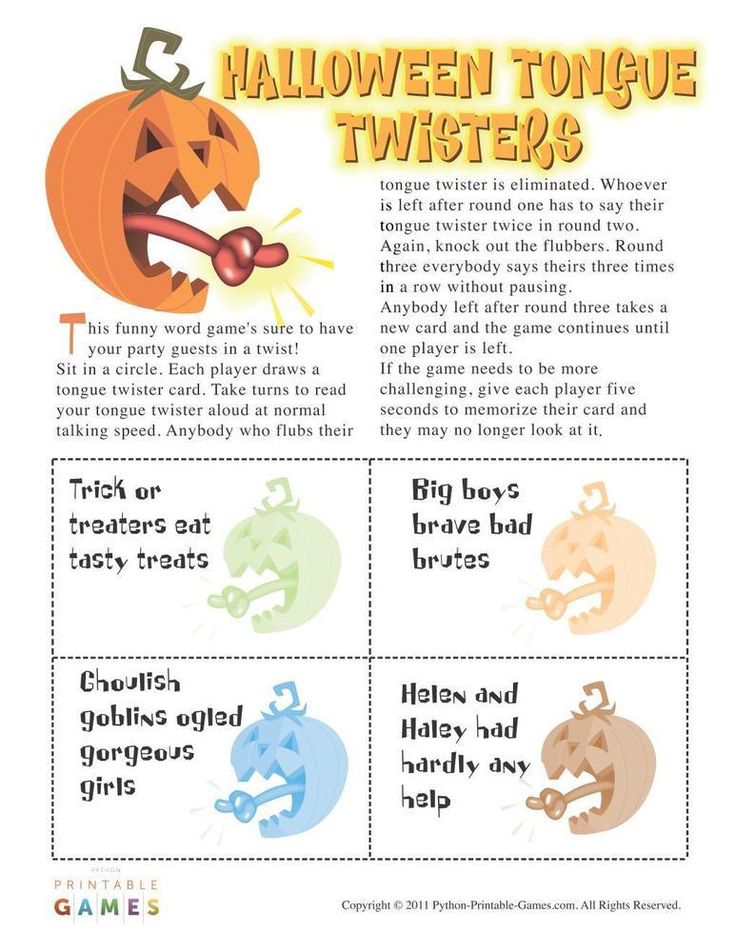 They can also be an excellent tool to boost language skills, improve brain function, and promote confidence.
They can also be an excellent tool to boost language skills, improve brain function, and promote confidence.
Many professionals who speak in front of an audience use tongue twisters to warm-up, and they are also used in the treatment of some speech impediments.
Get set to reap the benefits of tongue twisters by exploring this fascinating topic.
Table of Contents
- What Are Tongue Twisters?
- Benefits of Tongue Twisters for Kids
- Funny Tongue Twisters for Kids
- Easy Tongue Twisters for Kids
- Short Tongue Twisters for Kids
- Hard Tongue Twisters for Kids
- Famous Tongue Twisters for Kids
- What Is the Hardest Tongue Twister in the World?
- Which Tongue-Tripping Tongue Twister Trips Your Tongue?
What Are Tongue Twisters?
A tongue twister is any set or series of words that are difficult to say, correctly, quickly, and in sequence.
They may or may not make sense. But the goal of a good tongue twister isn’t to make sense, so that’s okay.
But the goal of a good tongue twister isn’t to make sense, so that’s okay.
For example:
I have got a date at a quarter to eight; I’ll see you at the gate, so don’t be late:
This tongue twister is also a short poem, and the words are in an order that makes sentences we can understand.
Weathered weather leather better:
This is also a tongue twister, but the words are not in an order that makes sense as a sentence.
Benefits of Tongue Twisters for Kids
So, back to those claims that tongue twisters have brain, language, and confidence-boosting benefits.
Here’s an overview of some of those benefits.
- Speaking is a motor skill. The brain must learn to connect each sound we make to a series of specific muscle movements. Tongue twisters can help to strengthen these brain-muscle connections.
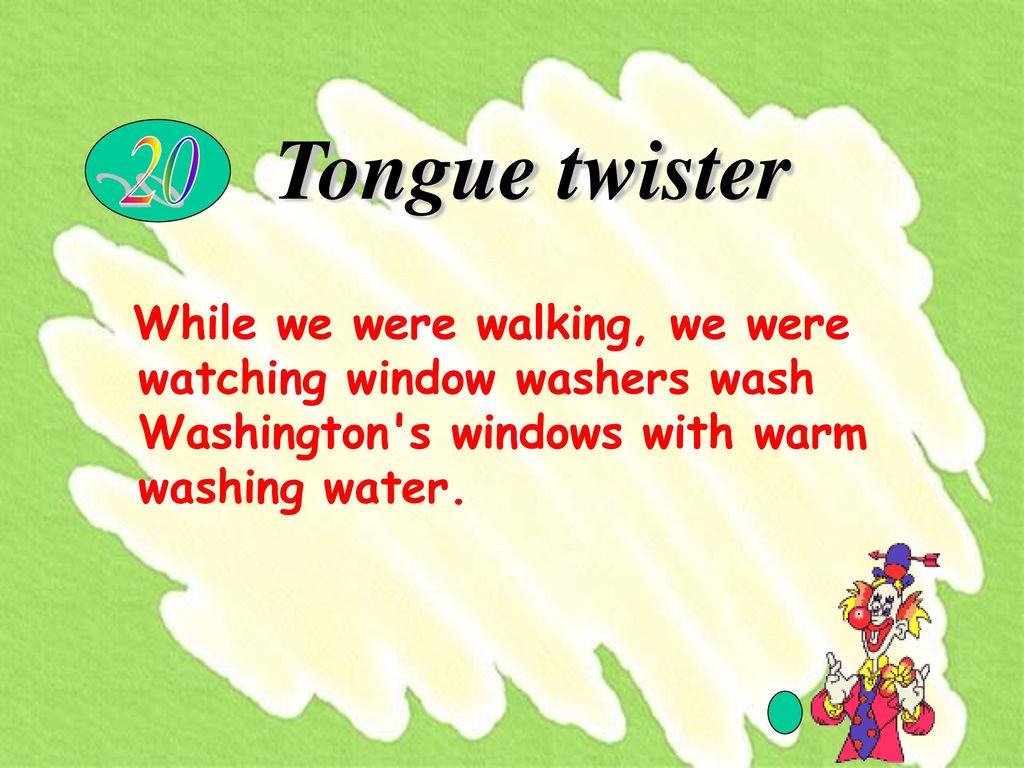
- Tongue twisters stretch and work the muscles we use when speaking and this helps us pronounce words more clearly. Children with clearer pronunciation will experience less frustration when attempting to share their needs, thoughts, and feelings.
- Having fun playing with tongue twisters provides a low-pressure way to talk about words and their meanings. During these chats, you can discuss and reinforce rhyming, vocabulary, antonyms, synonyms, and other important aspects of language.
- Kids who have strong speech and language skills are more likely to speak with confidence. That also makes them more likely to ask questions and take on leadership roles.
- Tongue twisters require the speaker to slow down, pay attention, speak precisely, and practice repetition. These skills can be beneficial in other areas of life.
Ready to get your child started on these fun word challenges? Or maybe you want to practice some to impress your child before you introduce them to the world of tongue twisters. Either way, you may be familiar with a few tongue twisters, but here are 102 examples so you have plenty to choose from.
Either way, you may be familiar with a few tongue twisters, but here are 102 examples so you have plenty to choose from.
Funny Tongue Twisters for Kids
These are not only amusing on their own, but you’re also likely to crack up laughing at the linguistic mistakes they induce.
If you know your child is motivated by humor, these are a great place to start.
- A big black bug bit a big black dog.
- The great Greek grape growers grow great Greek grapes.
- Smelly shoes and socks shock sisters.
- Chester Cheetah chews a chunk of cheap cheddar.
- Five frantic frogs fled from fifty fierce fish.
- Fred fed Ted bread, and Ted fed Fred bread.
- A skunk sat on a stump and thunk the stump stunk, but the stump thunk the skunk stunk.
- How much caramel can a canny cannonball cram in a camel if a canny cannonball can cram caramel in a camel?
- If colored caterpillars could change their colors constantly could they keep their colored coat colored properly?
- Did Dick Dickens prick his pinkie picking cheap pickles?
- I saw a kitten eating chicken in the kitchen.
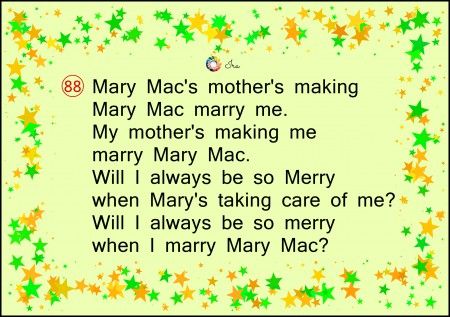
- Six sticky skeletons.
- Ned Nott was shot and Sam Shott was not, so is it better to be Shott than Nott?
- Yellow butter, purple jelly, red jam, black bread, spread it thick, say it quick.
- There was a fisherman named Fisher who fished for some fish in a fissure. ‘Til a fish with a grin pulled the fisherman in. Now they’re fishing the fissure for Fisher.
- If Stu chews shoes, should Stu choose the shoes he chews?
- I was born on a short, shiny, ship at shore.
- One-one was one racehorse. Two-two was one too. One-one won one race. Two-two won one too.
- Gobbling gargoyles gobbled gobbling goblins.
- Pirates’ private property chest.
- Birdie birdie in the sky laid a turdie in my eye.
- How many cans can a cannibal nibble if a cannibal can nibble cans? As many cans as a cannibal can nibble if a cannibal can nibble cans.
- A snake sneaks to seek a snack.
Easy Tongue Twisters for Kids
For younger children, those with less confidence, or kids with additional speech challenges, begin with one or more of these easy twisters.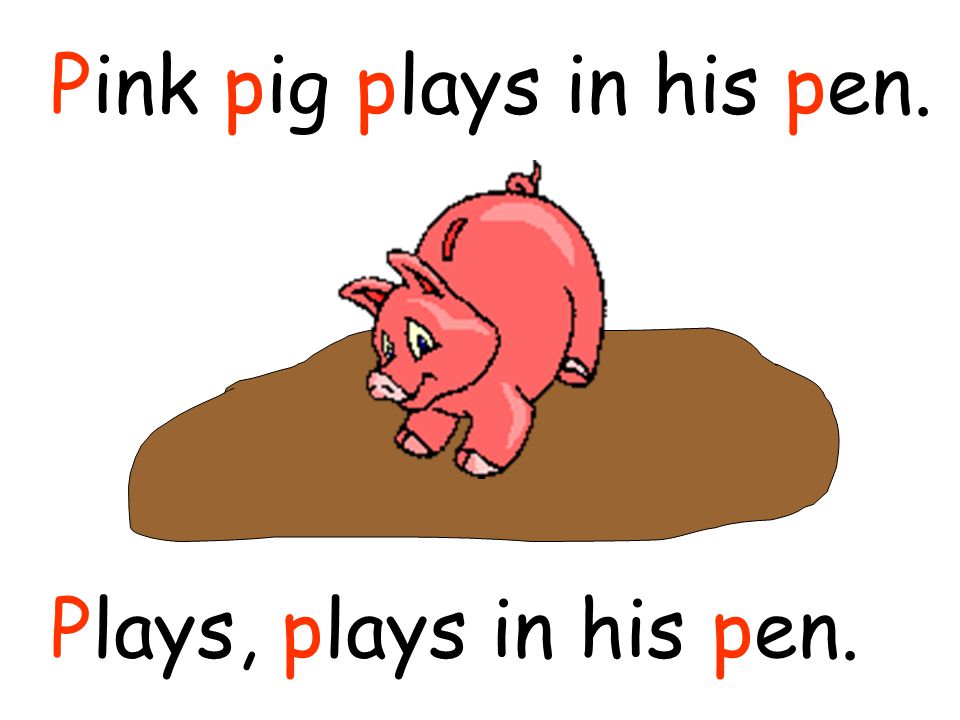 They won’t be as frustrating as some of the longer and more complicated ones. Once these are mastered, you can move on to the harder twisters.
They won’t be as frustrating as some of the longer and more complicated ones. Once these are mastered, you can move on to the harder twisters.
- He threw three balls.
- Eddie edited it.
- Mommy made me eat my M&Ms.
- Busy buzzing bumblebees.
- Big nose, big blows.
- Friendly fleas and fireflies.
- Popular peppers popping.
- Sing, ping, sling, pling.
- Splish, splash, splosh, went the dog in the wash.
- Bella laughed ‘til she barfed.
- What a terrible tongue twister.
- Annie and Andy’s April anniversary.
- How many cookies could a good cook cook If a good cook could cook cookies?
- Two tried and true tridents.
- Loose lips long licks.
- Four furious friends fought for the phone.
- Great glass globes glow greenly.
- Stanley stands sadly on the steep steps.
- The queen in green screams.
- Bears breathe blackberries.
- Rubber rudders bounce.

- A happy hippo hopped and hiccupped.
Short Tongue Twisters for Kids
Short tongue twisters for kids are great for those with a shorter attention span. That makes them a good choice for younger kids or those who suffer from Attention Deficit Disorder.
These short ones won’t be as entertaining or funny as some of the others on the overall list, though.
- She sees cheese.
- The black bat’s back.
- Daddy draws doors.
- Red lorry, yellow lorry.
- Fresh French fried fly fritters.
- Irish wristwatch.
- Red Buick, blue Buick.
- Flashy fish massage.
- Selfish shellfish.
- Double bubble gum, bubbles double.
- Greet with glee.
- Eleven benevolent elephants.
- Ed had edited it.
- Slap shot shiner.
- She threw three balls.
- Specific Pacific.
- Flash place.
- Stop said Sid.
- Sheena leads, Sheila needs.
- Russian Rob runs.
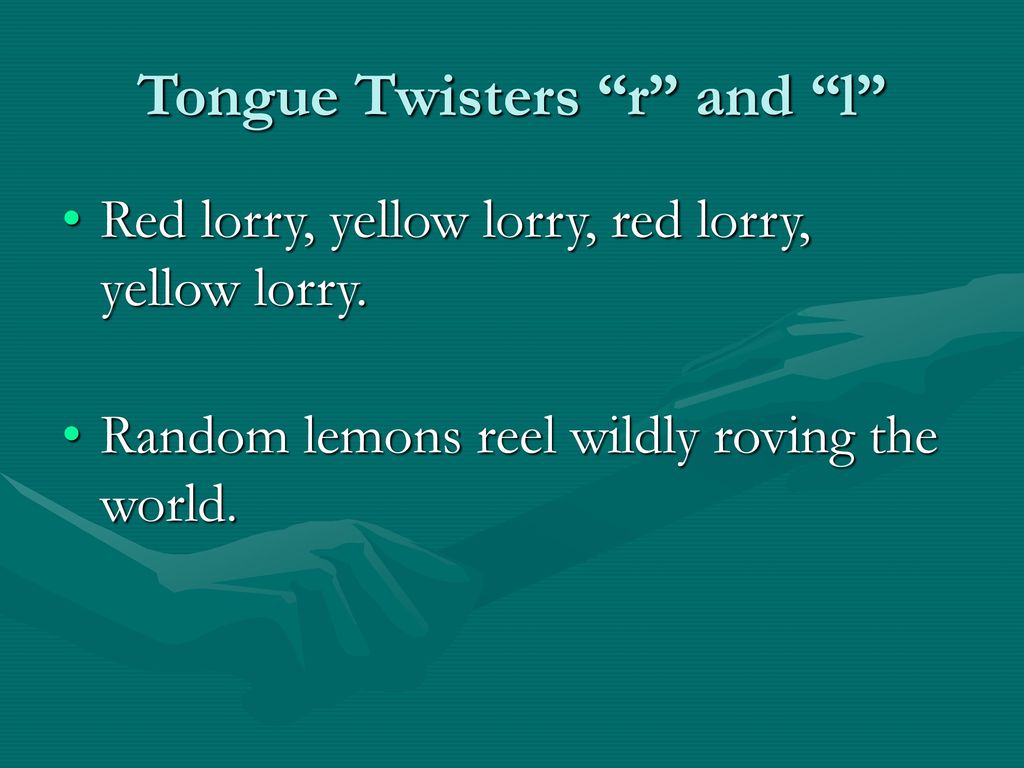
- Santa’s short suit shrunk.
- Big black bugs.
- Pirates’ private plank.
- Rudder valve reversals.
- Stupid superstition.
- Argyle gargoyle.
Hard Tongue Twisters for Kids
If you have a little tongue twister master in the home, challenge them with these fun and hilarious examples.
Since these are more difficult, they should keep them happily practicing for a while.
- Six sick hicks nick six slick bricks with picks and sticks.
- Shave a single shingle thin.
- I slit a sheet, a sheet I slit. Upon the slitted sheet I sit.
- To begin to toboggan first buy a toboggan, but don’t buy too big a toboggan. Too big a toboggan is too big a toboggan to buy to begin to toboggan.
- Rugged rubber baby buggy bumpers.
- Imagine an imaginary menagerie manager managing an imaginary menagerie.
- Rory the warrior and Roger the worrier were reared wrongly in a rural brewery.
- Sort three short sword sheaths.

- Thirty-three thirsty, thundering thoroughbreds thumped Mr. Thurber on Thursday.
- Wide right turns.
- Brisk brave brigadiers brandished broad bright blades, blunderbusses, and bludgeons — balancing them badly.
- Send toast to ten tense stout saints’ ten tall tents.
- Supposed to be pink pistachio, supposed to be pistachio pink.
- The thirty-three thieves thought that they thrilled the throne throughout Thursday.
- Six sleek swans swam swiftly southwards.
- Opposite octopus ocular optics.
- Dark dusty disks.
- Seven sleazy shysters in sharkskin suits sold sheared sealskins to seasick sailors.
- Shut up the shutters and sit in the shop.
- If you must cross a course cross cow across a crowded cow crossing, cross the cross coarse cow across the crowded cow crossing carefully.
Famous Tongue Twisters for Kids
How many of these famous tongue twisters for kids do you know? You can let your child know that these were popular way back in the day when you were little.
Try not to be disheartened by their amazed expressions when they have trouble picturing you as a child.
- Peter Piper picked a peck of pickled peppers. A peck of pickled peppers Peter Piper picked. If Peter Piper picked a peck of pickled peppers, where’s the peck of pickled peppers Peter Piper picked?
- I saw Susie sitting in a shoeshine shop. Where she sits she shines, and where she shines she sits.
- If Stu chews shoes, should Stu choose the shoes he chews?
- I scream, you scream, we all scream for ice cream!
- Betty Botter bought some butter, But she said the butter’s bitter. If I put it in my batter, it will make my batter bitter, but a bit of better butter will make my batter better. So Betty Botter bought a bit of better butter.
- How much wood would a woodchuck chuck, if a woodchuck could chuck wood? A woodchuck would chuck as much wood as a woodchuck would if a woodchuck could chuck wood.
- Fuzzy Wuzzy was a bear, Fuzzy Wuzzy had no hair.
 Then Fuzzy Wuzzy wasn’t fuzzy, was he?
Then Fuzzy Wuzzy wasn’t fuzzy, was he? - Whether the weather be fine or whether the weather be not, whether the weather be cold or whether the weather be hot, we’ll weather the weather whatever the weather, whether we like it or not.
- I thought a thought, But the thought I thought wasn’t the thought I thought I thought. If the thought I thought I thought had been the thought I thought, I wouldn’t have thought so much.
- She sells sea shells by the seashore, and the shells she sells by the seashore are sea shells for sure.
- Round and round the rugged rock the ragged rascal ran.
In 2013, a team from MIT, in conjunction with Haskins Laboratories in New Haven, Conn., Ludwig-Maximilians University in Munich, Wellesley College in Massachusetts, and the University of Southern California (USC) in Los Angeles, used tongue twisters to research the brain’s speech planning process (1).
They recorded volunteers saying or trying to say both word list and full sentence tongue twisters. One stood out as so difficult most people couldn’t say it once, let alone ten times fast.
As a result, they declared the most difficult tongue twister in the world to be:
“pad kid poured curd pulled cod.”
Which Tongue-Tripping Tongue Twister Trips Your Tongue?
Whether you’re in the car, on the bus, waiting in line, or anywhere else with a few minutes on your hands, tongue twisters are a fabulous way to distract, amuse, and entertain your child.
You can use them for some covert teaching, as a way to boost confidence, or to create a moment where you and your child are focused purely on each other.
Who knew that Peter Piper picked a peck of pickled peppers would be so useful?
Feedback: Was This Article Helpful?
Thank You For Your Feedback!
Thank You For Your Feedback!
What Did You Like?
What Went Wrong?
About the Author
Patricia Barnes
Patricia Barnes is a homeschooling mom of 5 who has been featured on Global TV, quoted in Parents magazine, and writes for a variety of websites and publications.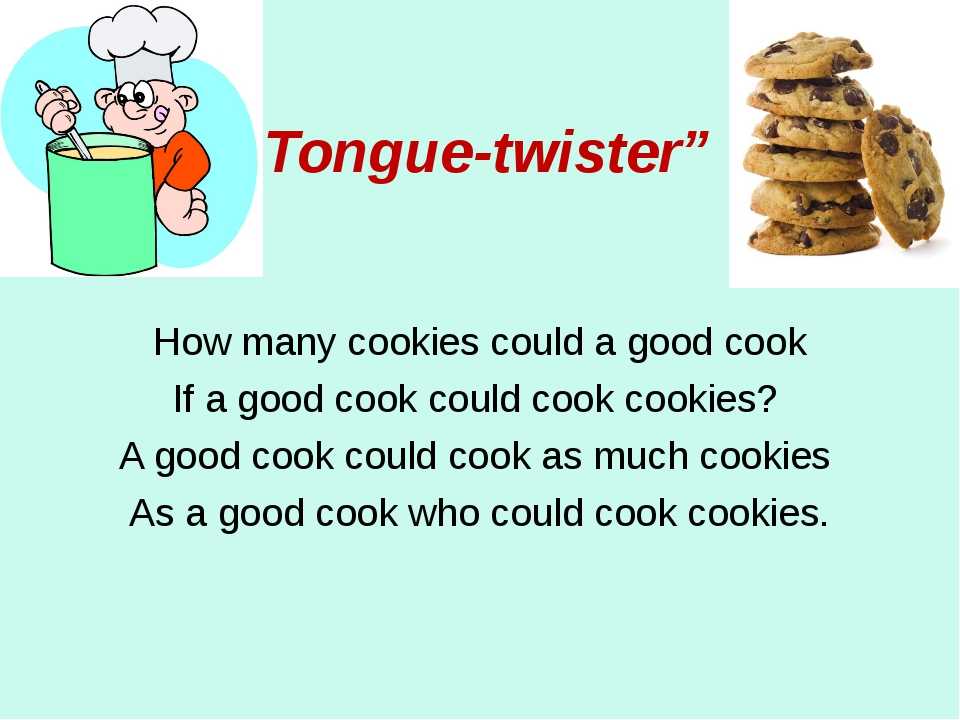 Doing her best to keep it together in a life of constant chaos, Patti would describe herself as an eclectic mess maker, lousy crafter, book lover, autism mom, and insomniac.
Doing her best to keep it together in a life of constant chaos, Patti would describe herself as an eclectic mess maker, lousy crafter, book lover, autism mom, and insomniac.
Subscribe to Our Newsletter
We won't send you spam. Unsubscribe at any time.
Top tongue twisters in English with translation
- 4.22 (23 votes)
- 303467
04.12.2018 (Updated on 16.01.2022)
The YES Foreign Language Center offers modern, exciting English courses that, among other things, pay serious attention to phonetics. The following are the 33 most popular tongue twisters in English with translation into Russian, which allow you to practice English pronunciation.
The YES Foreign Language Center offers modern online English courses at our school, which, among other things, pay serious attention to phonetics.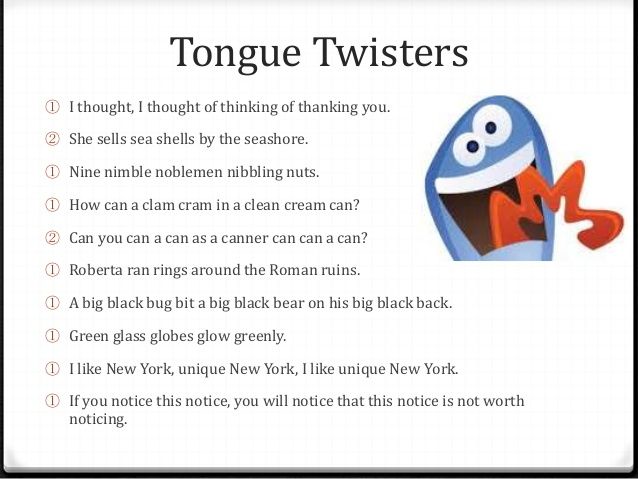 The following are the 33 most popular tongue twisters in English with translation into Russian, which allow you to practice English pronunciation.
The following are the 33 most popular tongue twisters in English with translation into Russian, which allow you to practice English pronunciation.
So you can train the pronunciation of non-equivalent, that is, having no correspondence in Russian, sounds [θ] and [ð]:
| There those thousand thinkers were thinking how did the other three thieves go through. | That thousand thinkers there were pondering how the other three thieves could get in. (NB: The grammar in this sentence is colloquial. It would be correct to say "how the other three thrives had gone through".) |
| The thirty-three thieves thought that they thrilled the throne throughout Thursday. | Thirty-three thieves thought they were shaking (shaking) the throne all Thursday. |
| He threw three free throws. | He made three free throws. |
Another non-equivalent sound [w]:
| Wayne went to Wales to watch walruses. | Wayne went to Wales to watch the walruses. |
| One-one was a race horse. | One-one was a racehorse. Two or two too. One-one won the race. Two or two too. |
| Why do you cry, Willy? | Why are you crying, Willy? Why are you crying? Why, Willy? Why, Willy? Why, Willy? Why? |
We train the sounds [p] and [b], which are pronounced with aspiration, that is, with aspiration.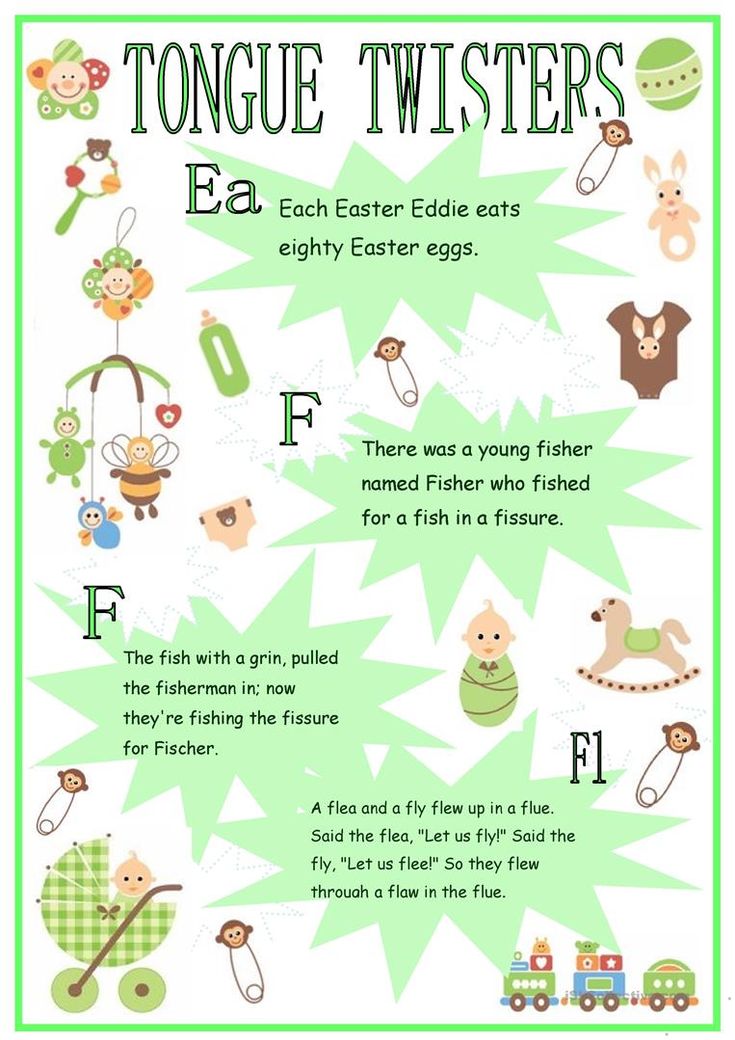 This phonetic phenomenon is absent in Russian:
This phonetic phenomenon is absent in Russian:
| Peter Piper picked a peck of pickled peppers. | Peter the piper took a bunch of pickled peppers. A pile of pickled peppers was taken by Peter the piper. If Peter the Piper took a pile of pickled peppers, where is the pile of pickled peppers that Peter the Piper took? |
| Betty Botter bought some butter. But she said the butter's bitter. If I put it in my batter, it will make my batter bitter. But a bit of better butter will make my batter better. So ‘twas better Betty Botter bought a bit of better butter. | Betty Botter bought some butter. But the oil was bitter, she said. If I put it in the dough, the dough will become bitter. |
| A big black bug bit a big black dog on his big black nose! | A big black bug has stung a big black dog in a big black nose! |
| Black back bat, black back bat, black back bat… | Bat with black back... |
We train the sound [t], when pronouncing which the tip of the tongue rests on the alveoli, and not on the back wall of the upper teeth, as happens in Russian.
| What a terrible tongue twister, | What a terrible phrase... |
| Two tiny tigers take two taxis to town. | Two tiny tigers are driving into the city in two taxis. |
We train the alternation of sounds [t] and [θ]:
| Tom threw Tim three thumbtacks. | Tom tossed three push pins to Tim. |
We train the sound [k], which is also pronounced with aspiration, that is, not quite like its Russian equivalent:
| How can a clam cram in a clean cream can? | How can an oyster fit into a clean bowl? |
| How many cans can a cannibal nibble, | How many cans can a cannibal eat if a cannibal can chew cans? As many cans as a cannibal can chew if a cannibal can chew cans. |
Now let's practice the sound combination [skr]:
| I scream, you scream, we all scream for ice-cream! | I scream-demand, you scream-demand, we all scream-demand ice cream! |
We train the alternation of sounds [k] and [t∫]:
| I saw a kitten eating chicken in the kitchen. | I saw a kitten eating chicken in the kitchen |
Now alternating [k] and [g]:
| How many cookies could a good cook cook, if a good cook could cook cookies? A good cook could cook as many cookies as a good cook who could cook cookies. | How many cookies can a cook make well if a good cook can make cookies? A good cook can make as many cookies as a good cook can make cookies. |
We train the combination [gr]:
| The great Greek grape growers grow great Greek grapes. | Prominent Greek growers grow excellent Greek grapes. |
We train the sound [∫], the alternation of this sound with the sound [s], as well as the alternation of [s], [ð] and [∫]:
| I wish to wash my Irish wristwatch. | I want to wash my Irish wristwatch. |
| We surely shall see the sun shine soon. | We will surely see the sun shine soon. |
| So, this is the sushi chef. | So, this is the sushi chef. |
We train the sound [t∫], which is pronounced more intensely than Russian [h]:
| Chester Cheetah chews a chunk of cheep cheddar cheese. | Chester the Cheetah was chewing on a piece of cheap Cheddar cheese. |
We train the sound [s], as well as the sound combinations [sw], [sl] and [sn]:
| Celibate celebrant, celibate celebrant, celibate celebrant... | An unmarried priest... |
| Six sleek swans swam swiftly southwards. | Six sleek swans swam south. |
| Six slimy snails sailed silently. | Six slimy snails swam quietly (under sail). |
We train the sound [r], which bears little resemblance to its Russian equivalent:
| Rory the warrior and Roger the worrier were reared wrongly in a rural brewery. | Warrior Rory and Warrior Roger were wrongly raised in a rural brewery. |
We train the sound [f], which is pronounced with great effort, with a greater accent than its Russian equivalent:
| Four furious friends fought for the phone. | Four angry friends fought over the phone. |
The English sound [m] does not require special training, since the ways of pronouncing it in Russian and English are completely the same. However, in the following tongue twister, the play on words is interesting: Mary - marry - merry. The first two words sound the same, but the third differs from them in its stressed vowel:
| Mary Mac's mother's making Mary Mac marry me. Will I always be so merry when Mary's taking care of me? | Mary Mack's mom is forcing Mary Mack to marry me. My mom is forcing me to marry Mary Mack. Will I always be cheerful if Mary takes care of me? Will I always be cheerful if I marry Mary Mack? |
Now let's practice some vowel sounds. The pronunciation of English vowels should be given special attention - they bear little resemblance to Russian vowels. Sound [e]:
| Seventy seven benevolent elephants. | Seventy-seven benevolent elephants. |
The following tongue twister is interesting in that the sound [e] is always followed by the same consonant, but it is preceded by different sounds and sound combinations:
| Fred fed Ted bread, and Ted fed Fred bread. | Fred fed Ted bread and Ted fed Fred bread. |
Diphthong (that is, a vowel sound consisting of two elements) [iə]:
| Near an ear, a nearer ear, a nearly eerie ear. | Close to the ear, closer ear, close to the intimidating ear. |
Diphthong [ei] (and in one word [ai]):
| On a lazy laser raiser lies a laser ray eraser. | On the lazy laser lies the destroyer of laser beams. |
There are tongue twisters that allow you to hone the pronunciation of all English sounds without exception - both consonants and vowels. Known for their snobbery, the British claim that no nationality can learn to speak English without an accent, except for the Dutch.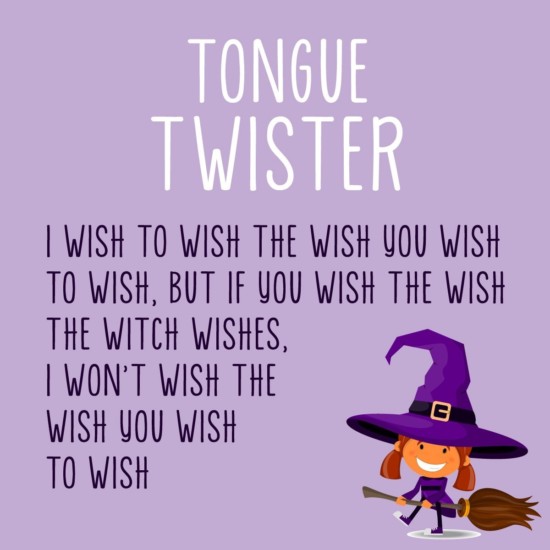 Well, let's try to refute this assertion!
Well, let's try to refute this assertion!
Afanaskina Ekaterina Vladimirovna - expert of the educational and methodological department
Center for Foreign Languages "YES".
Tongue twisters in English (Tongue twisters)
Why tongue twisters are useful
The principle of work of tongue twisters in English is simple: they contain words for one or more difficult to pronounce sounds or their combinations. The level of difficulty is different for everyone, besides, the snags with pronunciation depend on the personal characteristics of each person. But everyone will have to sweat. Your efforts will pay off with positive results:
- You will be able to pronounce sounds clearly and confidently that are not found in your native language.
- And just as clearly you can combine these sounds in one sentence without pauses.
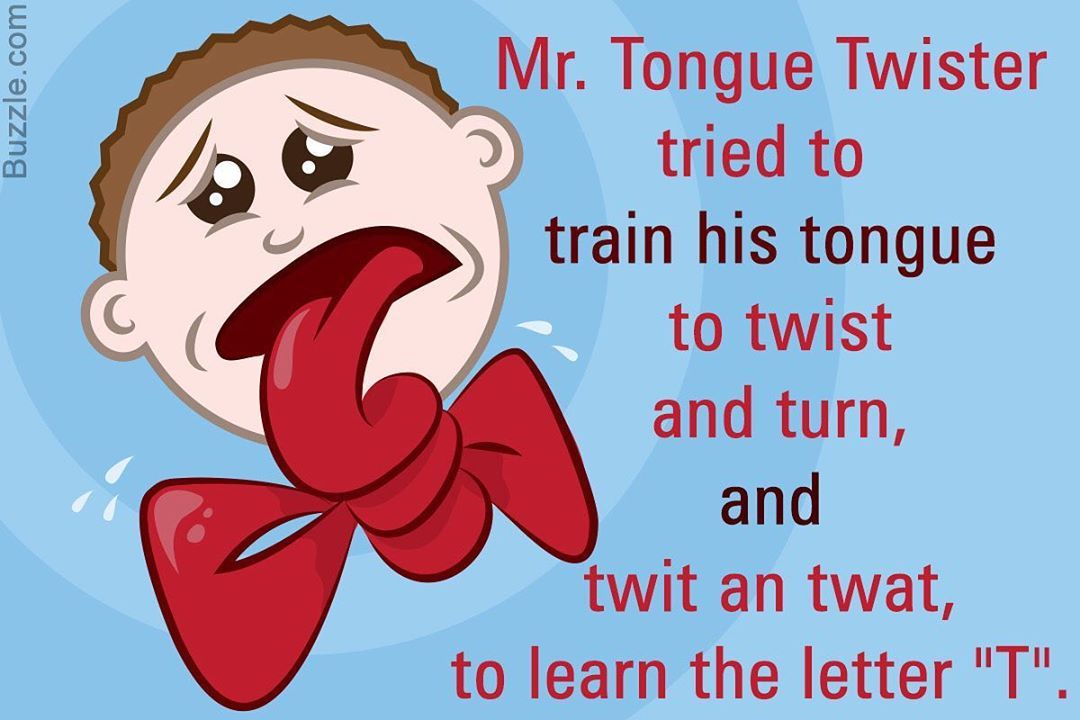
- You will overcome the language barrier: after panting over tongue twisters, a conversation with a native speaker may seem easier.
- Become more confident in public speaking: when your audience is large or unfamiliar with the topic, clear speech is especially important.
- Get positive emotions: in most cases, tongue twisters are quite funny in meaning, so they can cheer you up.
By the way, it is important to understand that meaning is a secondary thing in tongue twisters. In this article, we give them with a translation, and you can see how comical and sometimes illogical it is. Yes, and tongue twisters in Russian are also not invented for the sake of meaning (a bull is dumb-mouthed, a dumb-mouthed bull-calf, the bull’s lip is stupid).
But it's still worth translating them - sometimes unexpected words come across in them, for example thoroughbred - "thoroughbred horse".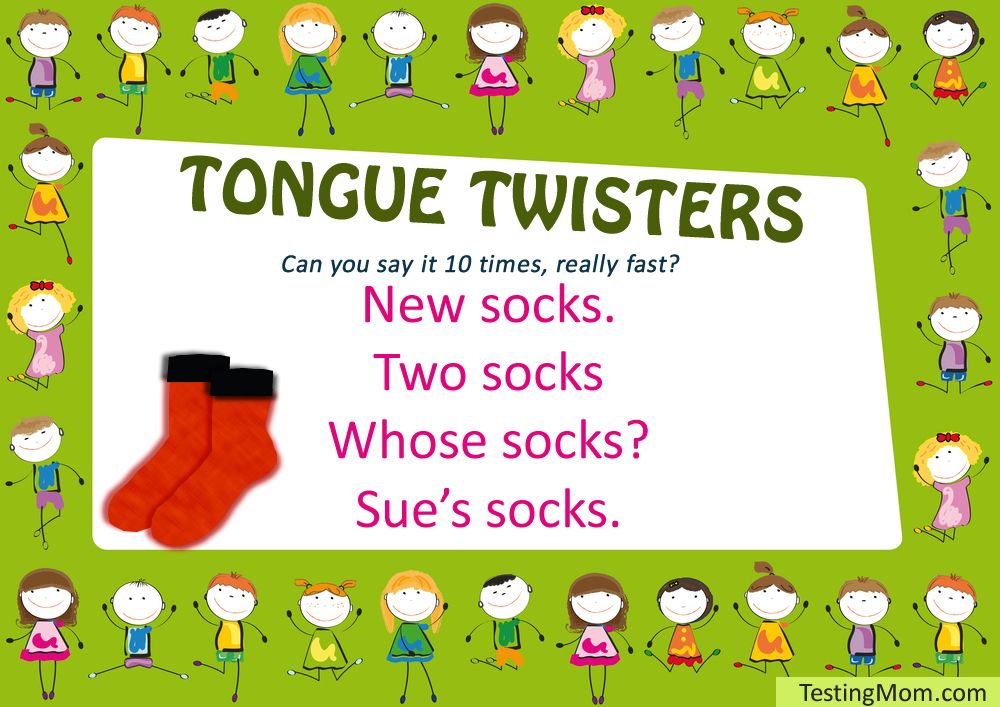 So another plus of tongue twisters is that they replenish vocabulary.
So another plus of tongue twisters is that they replenish vocabulary.
Demo lesson for free and without registration!
Take a lesson, learn about the school and get a promotional code for English classes
A few tips on how to better practice tongue twisters in English
- Always start with slow reading.
- Analyze each word: make sure you can say it separately several times.
- Break the sentence into semantic parts (subject + predicate, predicate + object, subject + object, and so on). Read them together.
- Slowly read the entire tongue twister. Speak several times even more slowly those moments on which you stumble.
- Gradually increase the tempo, remembering to stop at difficult sounds.
Short English Tongue Twisters for Beginners
To warm up, we have put together short sentences in English so you can easily deal with each without wasting a lot of time. They can also be taught to children.
They can also be taught to children.
| Eleven benevolent elephants. | Eleven volunteer elephants. |
| She sees cheese. | She sees the cheese. |
| Six sticky skeletons. | Six sticky skeletons. |
| Truly rural. | Truly rustic. |
| Each Easter Eddie eats eighty Easter eggs. | Eddie eats eighty Easter eggs every Easter. |
| Which witch is which? | Which witch is who? |
| Willy's real rear wheel. | Willy's real rear wheel. |
| Send toast to ten tense stout saints' ten tall tents. | Send a toast to the ten tall tents of the ten tense fat saints. |
| Six sleek swans swam swiftly southwards. | Six stylish swans swam quickly to the south. |
| Scissors sizzle, thistles sizzle. | Scissors hiss, thistles hiss. |
| A happy hippo hopped and hiccupped. | The happy hippo jumped up and hiccupped. |
| Cooks cook cupcakes quickly. | Chefs cook cupcakes quickly. |
| A really leery Larry rolls readily to the road. | A very suspicious Larry readily rolls onto the road. |
| Twelve twins twirled twelve twigs. | Twelve twins twisted twelve branches. |
| A snake sneaks to seek a snack. | The snake is sneaking around looking for a snack. |
I like New York, unique New York, I like unique New York. | I like New York, unique New York, I like unique New York. |
| Six Czech cricket critics. | Six Czech cricket critics. |
| Babbling baby boys blurted boldly. | The babbling little boys blabbed defiantly. |
| How can a clam cram in a clean cream can? | How can a clam squeeze into a clean sour cream tin? |
| An ape hates grape cakes. | Primate hates grape cakes. |
| Fred fed Ted bread, and Ted fed Fred bread. | Fred fed Ted bread and Ted fed Fred bread. |
| I saw a kitten eating chicken in the kitchen. | I saw a kitten eating chicken in the kitchen. |
| Can you can a can as a canner can can a can? | Can you preserve a tin can, since a canner can preserve tin cans? |
She sells seashells by the seashore.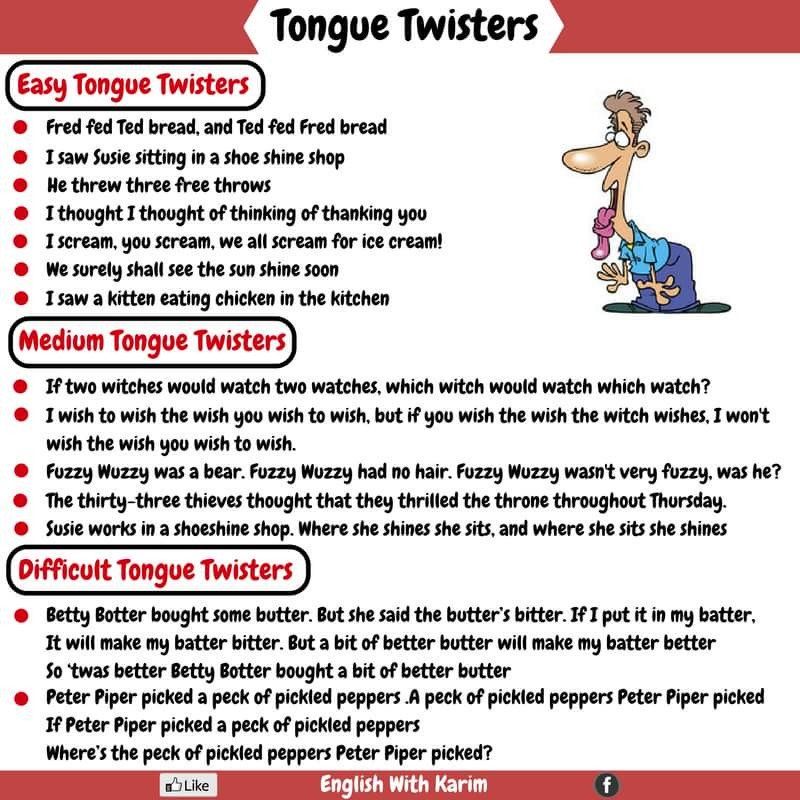 | She sells shells by the sea. |
| Gobbling gargoyles gobbled gobbling goblins. | Grunting gargoyles ate grumbling goblins. |
| Nine nice night nurses nursing nicely. | Nine cute night nannies babysitting nicely. |
| Billy Bob blabbered boldly. | Billy Bob was gossiping insolently. |
| Near an ear, a nearer ear, a nearly eerie ear. | Near the ear, nearest ear, almost creepy ear. |
| Many anemones see an enemy anemone. | Many anemones see a hostile anemone. |
Long tongue twisters for the brave
When you start to feel more confident with short tongue twisters, you can move on to longer ones.
Pay attention to the fact that the same words are often repeated in tongue twisters. And it is not always the same part of speech. For example, one tongue twister from the list below begins with these words: When a doctor doctors a doctor ... The word doctor is repeated three times - twice as a noun (doctor) and once as a verb (to heal). For a child who is just starting to learn a language, this can be difficult to understand, so it is worth explaining yourself or asking the teacher to do it in class.
And it is not always the same part of speech. For example, one tongue twister from the list below begins with these words: When a doctor doctors a doctor ... The word doctor is repeated three times - twice as a noun (doctor) and once as a verb (to heal). For a child who is just starting to learn a language, this can be difficult to understand, so it is worth explaining yourself or asking the teacher to do it in class.
Long tongue twisters have an additional advantage: they strain the muscles of the face, tongue and larynx with an enhanced effect. This process is very important for mastering a new language: in Russian, some sounds are pronounced softly, while in English they are hard. And it is necessary to train the speech apparatus to a new position.
Follow the same rules as we described above when you say these English tongue twisters:
Imagine an imaginary menagerie manager managing an imaginary menagerie. | Imagine an imaginary menagerie manager who manages an imaginary menagerie. |
| English can be understood through tough thorough thought, though. | The English language can be understood through hard, careful thinking, actually. |
| If you must cross a course cross cow across a crowded cow crossing, cross the cross cow across the crowded cow crossing carefully. | If you need to cross a cow crossing a riverbed at a crossing full of cows, cross the crossed cow at a crossing full of cows carefully. |
| Brisk brave brigadiers brandished broad bright blades, blunderbusses, and bludgeons - balancing them badly. | Agile bold foremen waved wide bright blades, blunderbusses and clubs - and poorly balanced them. |
| Six sick hicks nick six slick bricks with picks and sticks. | Six sick suckers dig six slippery bricks with picks and sticks.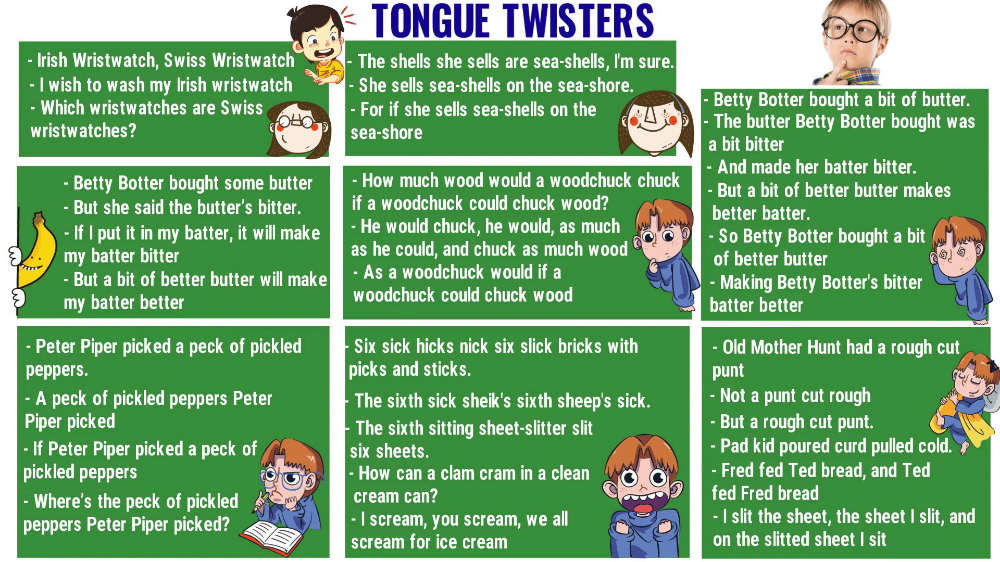 |
| The sixth sick sheikh's sixth sheep's sick. | The sixth sheep of the sixth sick sheikh is sick. |
| Rory the warrior and Roger the worrier were reared wrongly in a rural brewery. | Warrior Rory and restless Roger were wrongly raised in the village brewery. |
| Ingenious iguanas improvising an intricate impromptu on impossibly-impractical instruments. | Inventive iguanas improvise intricate improvisation on impossibly impractical instruments. |
| When a doctor doctors a doctor, does the doctor do the doctoring doctor as the doctor being doctored wants to be doctored or does the doctor do the doctoring doctor as he wants to doctor? | When a doctor treats a doctor, does the doctor who treats treats the way the doctor who is being treated wants to be treated, or does the doctor who treats treats the way he wants to be treated? |
These thousand tricky tongue twisters trip thrillingly off the tongue.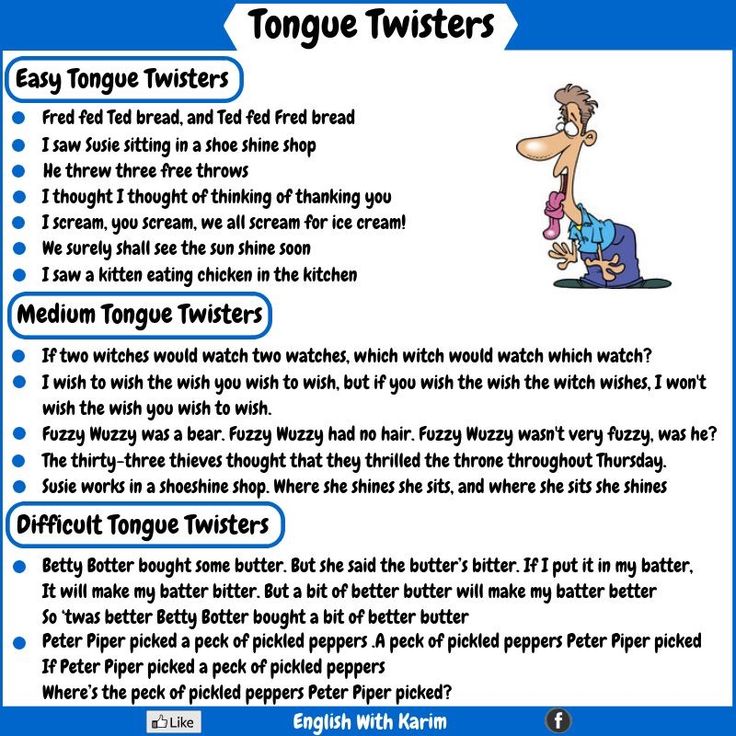 | These thousands of complex tongue twisters are breathtakingly flying off the tongue. |
| Thirty-three thirsty, thundering thoroughbreds thumped Mr. Thurber on Thursday. | Thirty-three eager, rumbling Thoroughbreds beat Mr. Thurber on Thursday. |
| A skunk sat on a stump and thunk the stump stunk, but the stump thunk the skunk stunk. | The skunk sat on the stump and thought the stump stinks, and the stump thinks the skunk stinks. |
| Give papa a cup of proper coffee in a copper coffee cup. | Give Batiushka a proper cup of coffee in a copper coffee cup. |
Tongue twisters for practicing the pronunciation of individual sounds
In the two previous blocks, we have collected tongue twisters for practicing different sounds. This is useful when you need to practice your pronunciation in general.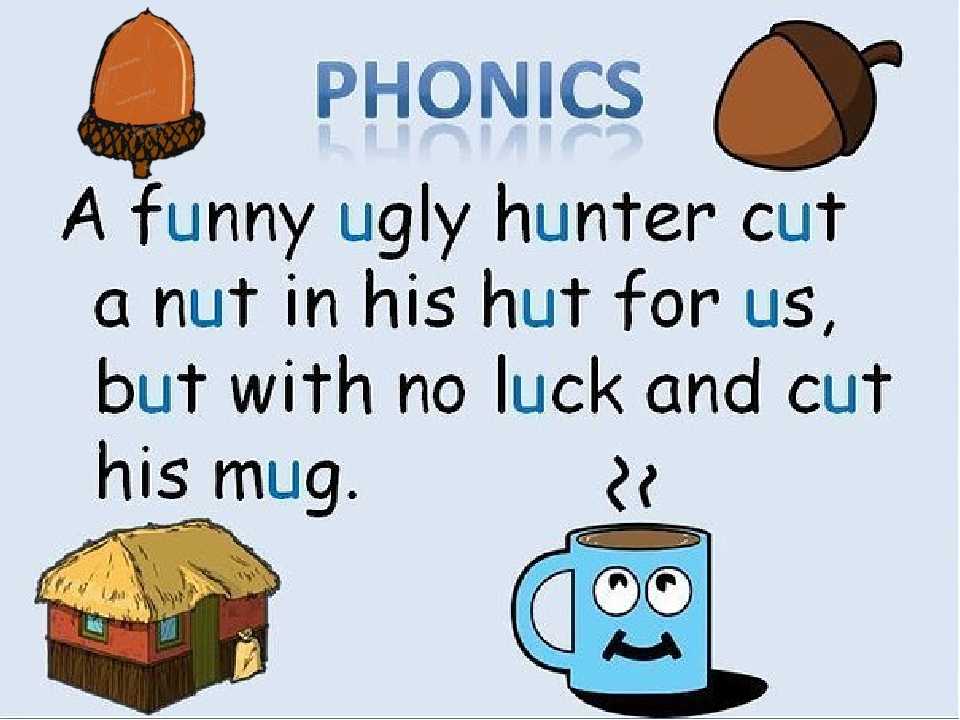 But sometimes difficulties can arise with specific sounds, and then it is worth focusing on them. This block contains lists of tongue twisters with some sounds that may cause difficulties for Russian speakers.
But sometimes difficulties can arise with specific sounds, and then it is worth focusing on them. This block contains lists of tongue twisters with some sounds that may cause difficulties for Russian speakers.
[θ] and [ð]
The first two are [θ] and [ð], which correspond to the letter combination th. Difficulties with them arise both in an adult and in a child - primarily because there are no similar ones in the Russian language at all.
Both sounds should be pronounced with the tongue relaxed and its tip between the upper and lower rows of teeth, leaving some space. Blow out air while speaking.
[θ] - a dull sound similar to Russian [s]. Therefore, try to pronounce [s] with the position of the speech apparatus that we described above.
[ð] - a sonorous sound similar to [з]. The same principle works with him.
At the very last moment, in both cases, remove the tip of the tongue from the teeth.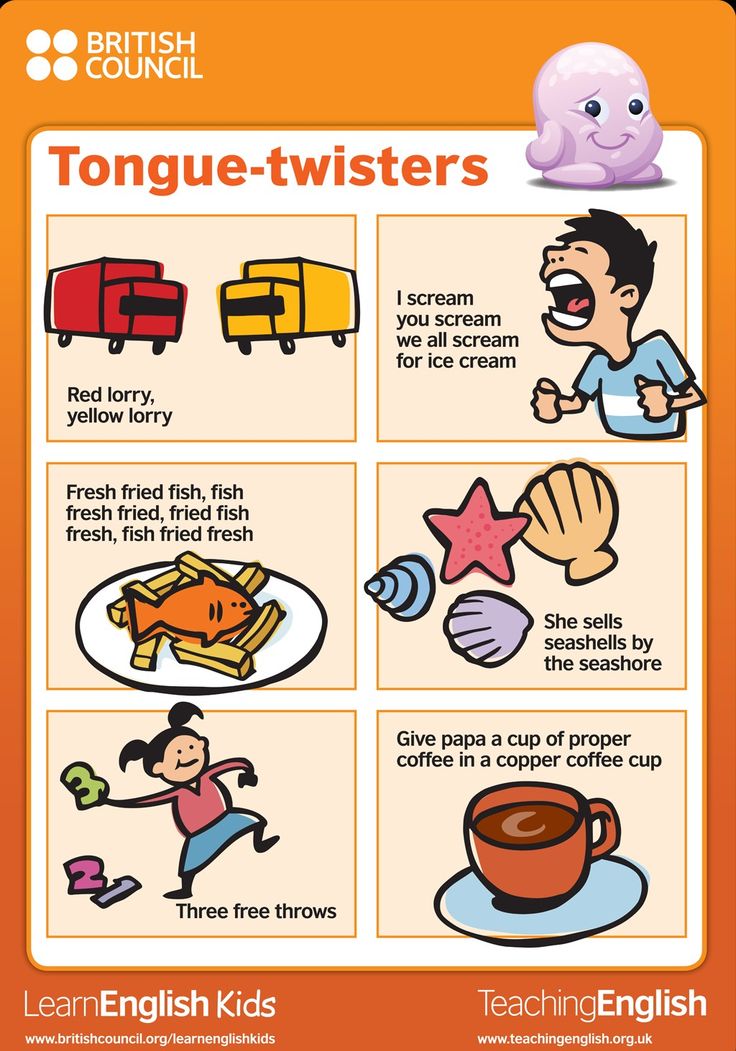
After practicing each sound separately, move on to tongue twisters:
| I thought, I thought of thinking of thanking you. | I thought I was thinking about thanking you. |
| He threw three balls. | He threw three balls. |
| He threw three free throws. | He threw three free throws. |
| Tom threw Tim three thumbtacks. | Tom threw three push pins to Tim. |
| Nothing is worth thousands of deaths. | Nothing is worth a thousand deaths. |
| But the thought I thought wasn't the thought I thought I thought. | I was thinking a thought. But the thought I was thinking was not the thought I was thinking what I was thinking. |
The thirty-three thieves thought that they thrilled the throne throughout Thursday.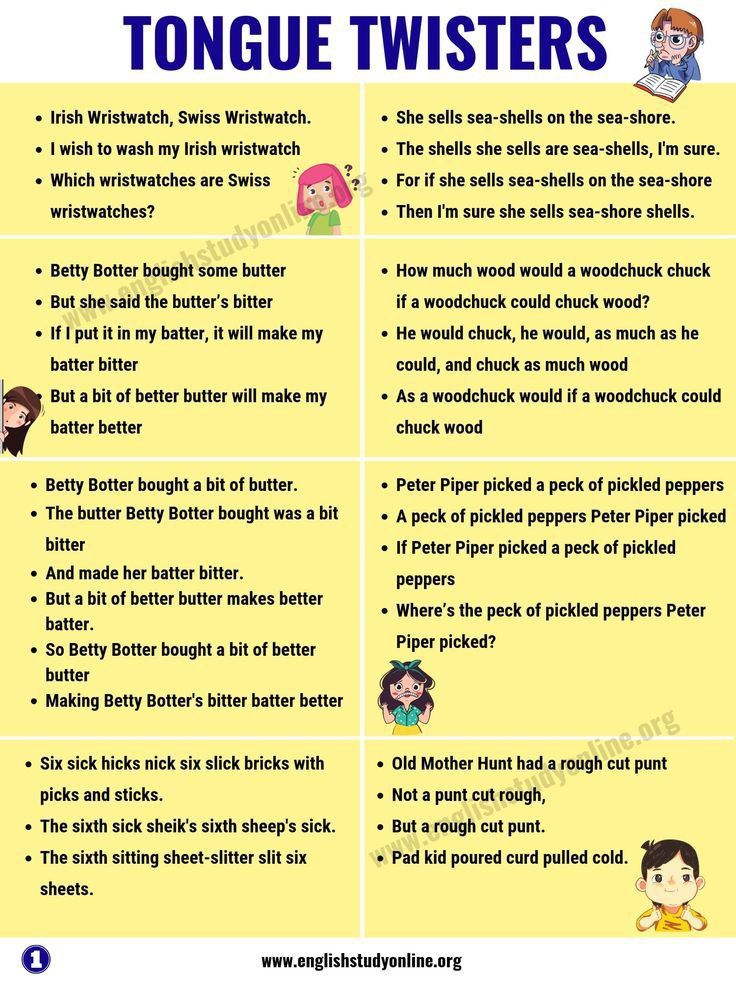 | Thirty-three thieves thought they were delighting the throne all Thursday. |
| This is the sixth zebra snoozing thoroughly. | This is the sixth zebra that is fast asleep. |
| Thirty three thousand people think that this Thursday is their thirtieth birthday. | Thirty-three thousand people think that this Thursday will be their thirtieth birthday. |
[w]
Another sound that can be difficult is [w]. It is also not in Russian, so it is often confused with [v] or [f].
To pronounce it correctly, round your lips and pull them forward a little. The back of the tongue rises to the soft palate, the tips of the tongue are raised. The position of the lips is as if you are about to blow out a candle.
Before making a sound, you can just move your mouth for a while to get used to it.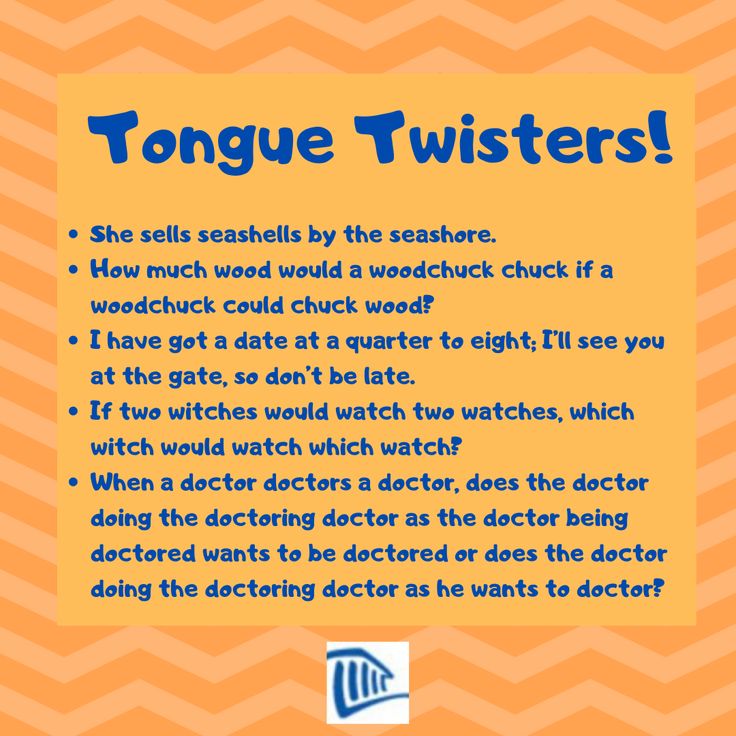
This list contains tongue twisters that have a lot of words for practicing sound [w]:
| Wetter weather never weathered wetter weather better. | Rainy weather has never held up rainy weather better. |
| When walking in Wyoming, watch wild wasps. | When walking around Wyoming, watch out for wild wasps. |
| Wally Winkle wriggles his white, wrinkled wig. | Wally Winkle pulls his wrinkled white wig. |
| Was wheat what we wanted? | Was wheat what we wanted? |
| We want waffles when we wake up. | We want waffles when we wake up. |
| Which is the witch that wished the wicked wish? | Who is the witch who made an evil wish? |
Wayne went to Wales to watch walruses.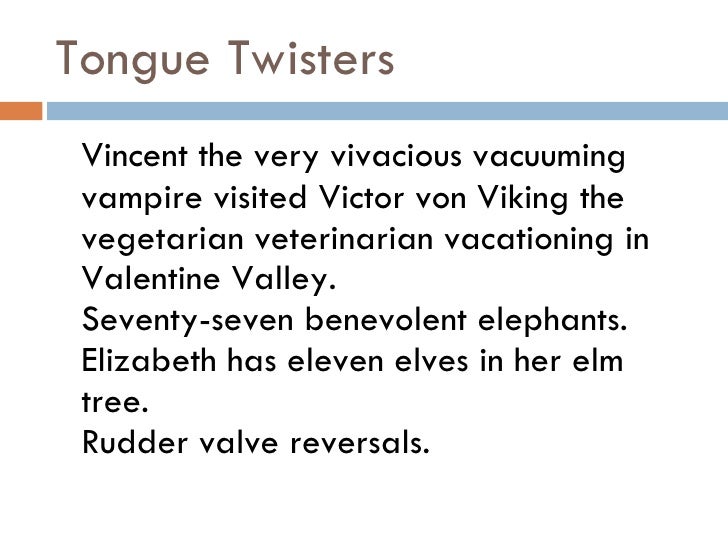 | Wayne went to Wales to see walruses. |
| A white walrus will wish for warm water. | The white walrus wants warm water. |
| Which wristwatches are Swiss wristwatches? | Which watch is a Swiss watch? |
| Why may we melee, when we may waylay? | Why do we need a fight when we can set up an ambush? |
| Weeping Winnie wails wildly. | Crying Winnie screams wildly. |
| We saw a wood saw. | We saw a crosscut saw. |
| We're real rear wheels. | We are real rear wheels. |
| Willie's really weary. | Willie is very tired. |
| I wish to wash my watch. | I want to wash my watch. |
| Will you, William? | Can you do it, William? |
| Wednesday's wild windy weather was woeful. | The wild windy weather on Wednesday was terrible. |
| We were welcomed to the weekend wedding. | We were invited to a wedding over the weekend. |
| I wish I were what I was when I wished I were what I am. | I would like to be who I was when I wanted to be who I am now. |
| The wild wind whipped Whit from the wharf. | Strong winds blow Whit off the dock. |
| Wally wanted water, but Wilma wanted whiskey. | Wally wanted water, but Wilma wanted whiskey. |
[b] and [p]
In English, as well as in Russian, there are unvoiced and voiced sounds.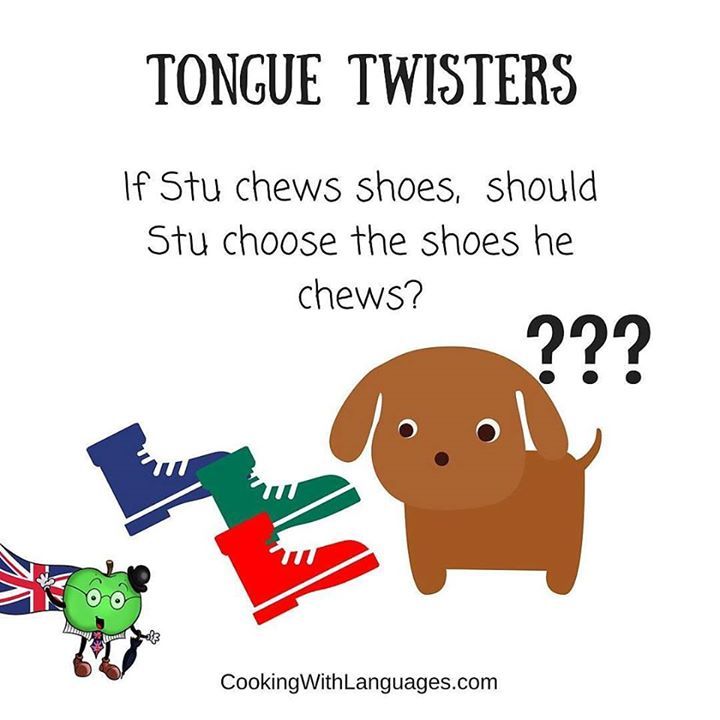 [b] and [p] may not cause difficulties in pronunciation, but it is important not to forget about aspiration - it is not in Russian. In addition, practicing them in pairs is useful for training speech clarity.
[b] and [p] may not cause difficulties in pronunciation, but it is important not to forget about aspiration - it is not in Russian. In addition, practicing them in pairs is useful for training speech clarity.
A word of advice for newcomers: while you are learning to speak English, it is better to pronounce some sounds more emphasized, so that your vocal apparatus gets used to the new position. You can even take a mirror and watch how your tongue, lips, teeth move. Keep your hands on your cheeks to feel the vibration or make sure there isn't one.
Practice the sounds [b] and [p] on these tongue twisters:
| Perry’s berries make peanut butter better. | Perry Berries make peanut butter better. |
| Buy pie pans before you buy butter plates. | Buy pie pans before you buy butter plates. |
Pat's bat played with Benny's penny.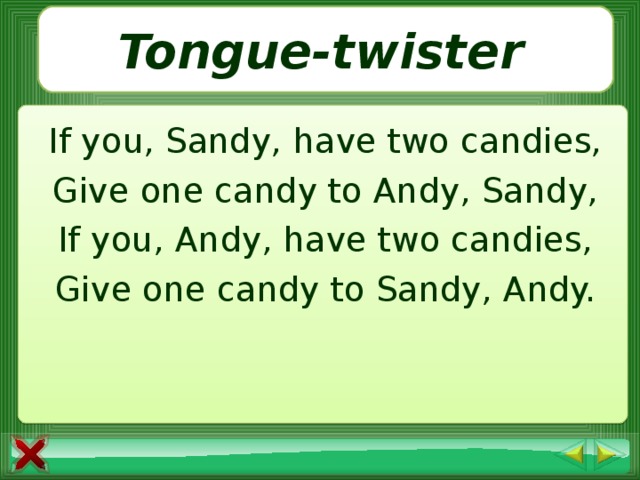 | Pat the bat was playing with Benny's penny. |
| Purely poor people need to perfect their power. | Absolutely poor people should improve their power. |
| The prince and the pauper play ping pong poignantly. | The prince and the beggar play ping-pong with force. |
| Printed papers under pressure make pens prickle. | Pressurized documents make pens scratchy. |
| Pickles and pennies take proper preparation. | Pickles and pennies require proper preparation. |
| Ben prefers pens to bought pots. | Ben prefers pens to store-bought pots. |
| The poor boar pours batter over his putter. | The poor boar is pouring dough on his stick. |
Bob's pop popped primarily because of pointed pressure.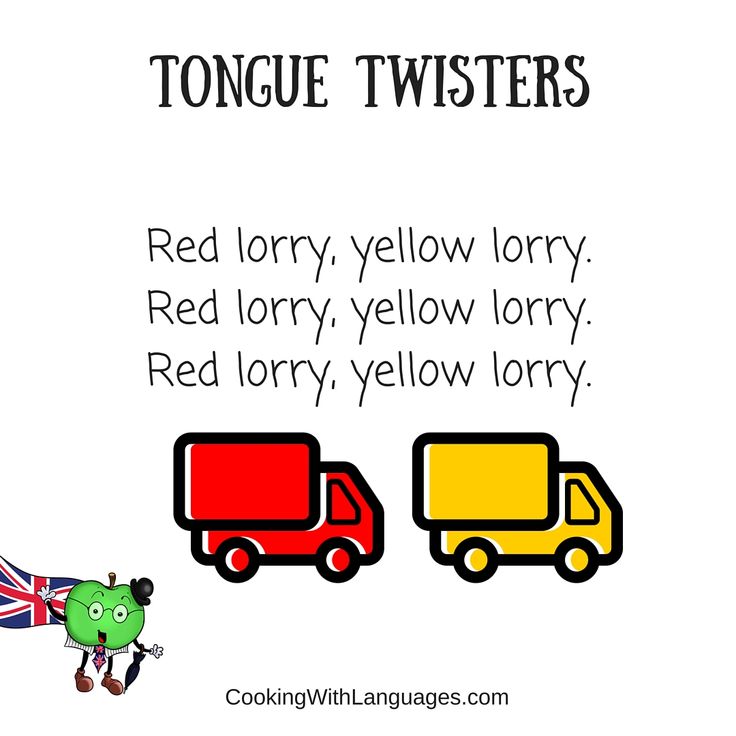 | Bob's pop was mainly due to directional pressure. |
| Peter Piper picked a peck of pickled peppers. | Peter Piper collected a bunch of pickled peppers. |
[r]
A sound that can be difficult for Russian speakers. [r] is a bit like Russian [r], but still pronounced differently. For a child who has problems with diction, this sound can be especially useful for practicing.
You need to rest the lateral borders of the tongue against the back teeth in the upper row, as if you are hugging them. And point the tip of the tongue up, but so that it does not touch anything at all - neither the palate, nor the teeth.
If it's hard to imagine this position, make sure your tongue is in the shape of a spoon - the edges of the spoon touch the back teeth in the top row, and the tip is turned up in the mouth.
When you put your tongue and teeth in the correct position, you need to tighten your jaw and tongue - and work out the sound [r] on tongue twisters:
As the roaring rocket rose, the restless roosters rollicked.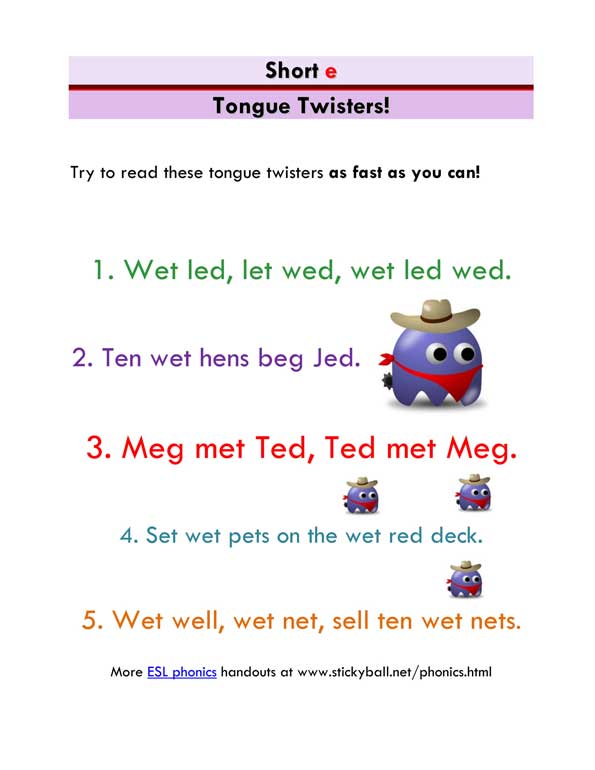 | While the roaring rocket was rising, restless roosters were noisily having fun. |
| The rat ran by the river with a lump of raw liver. | A rat was running along the river with a piece of raw liver. |
| A regal rural ruler. | Regal village ruler. |
| Ruth ran a running race in Rwanda. | Ruth ran a track event in Rwanda. |
| Round and round the rugged rock the ragged rascal ran. | A crook in rags was running around the uneven rock. |
| Ripe white wheat reapers reap ripe white wheat right. | Mature white wheat reapers harvest mature white wheat properly. |
| relax Red rap records help Ron. | Red rap records help Ron relax. |
Robert's written rotten writing.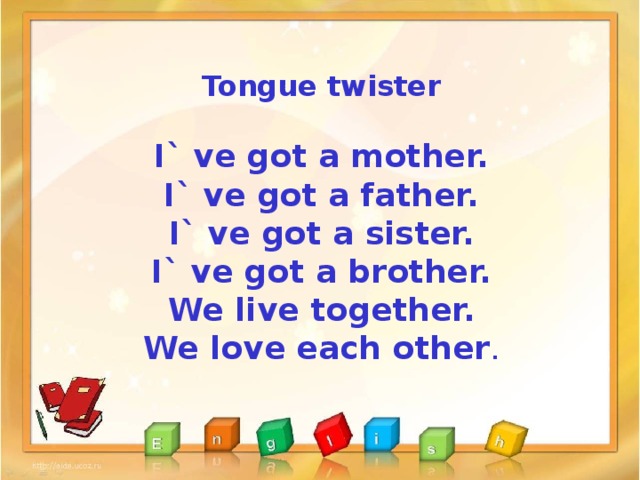 | Robert wrote immoral lyrics. |
| Roberta ran rings around the Roman ruins. | Roberta circled around the Roman ruins. |
| Return to the rural royal resort. | Go back to the village royal hotel. |
| Race winners really want red wine right away. | Race winners really want red wine now. |
| Real rock wall, real rock wall, real rock wall. | Real stone wall. |
| Don't rush round brown bread. | Do not rush with black bread. |
| Ray Rag ran across a rough road. Across a rough road, Ray Rag ran. | Ray Reg ran across a rough road. Ray Reg crossed the rough road. |
| Rex wrecks wet rocks. | Rex blows wet rocks.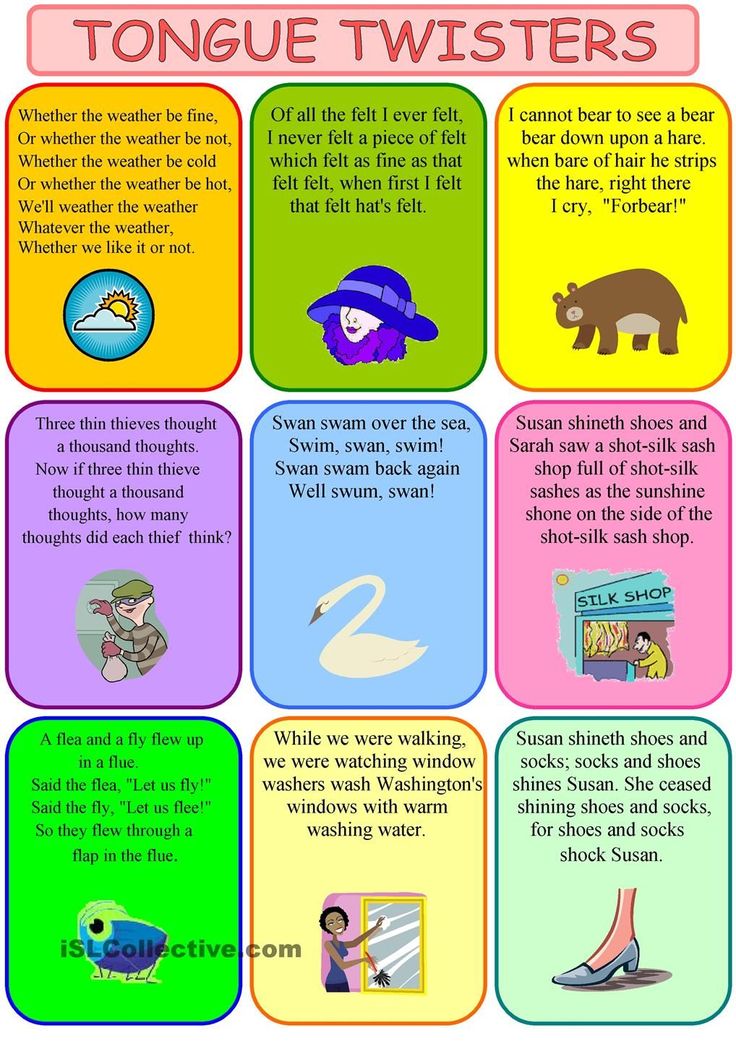 |
[s] and [ʃ]
Another pair that will help practice pronunciation is [s] and [ʃ]. And if everything is easier with [s] (it is pronounced almost like Russian [s], only more energetically), then [ʃ] will have to be tried.
This sound is between [w] and [w]: it is softer than [w], but harder than [w]. The main secret is that the tip of the tongue rises to the back of the alveoli (this is a small tubercle behind the two upper front teeth). Between them there is a small gap through which air can pass. The corners of the tongue are raised.
| I saw Susie sitting in a shoe shine shop. | I saw Susie sitting in the shoe shine shop. |
| Where she sits she shines, and where she shines she sits. | Where she sits, she shines, and where she shines, she sits there. |
Santa's short suit shrunk.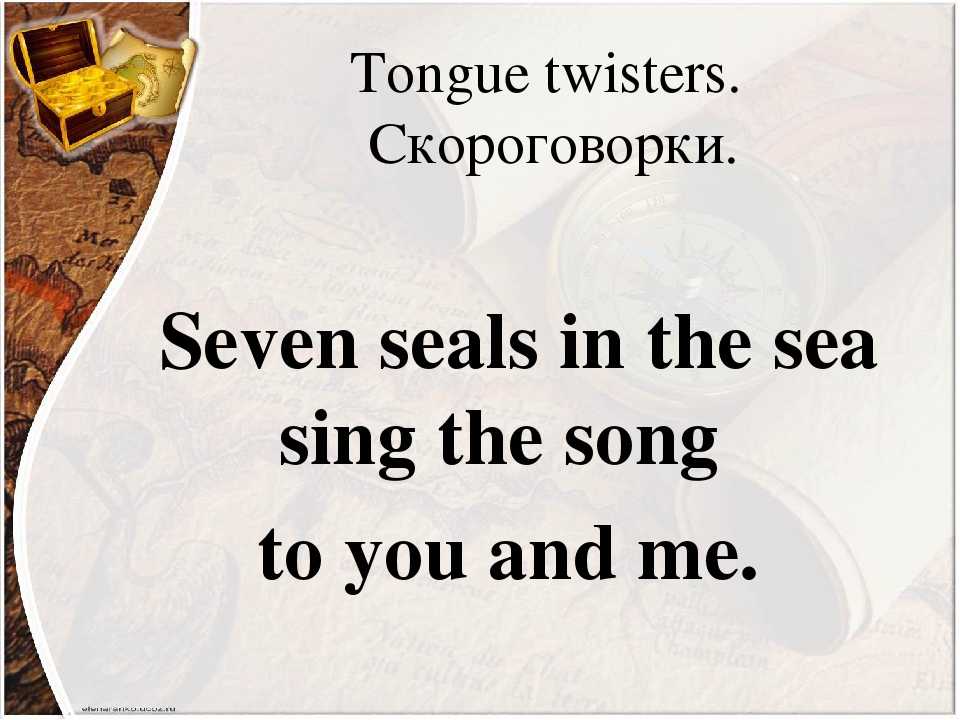 | Short Santa suit sat down. |
| How many sheets could a sheet slitter slit if a sheet slitter could slit sheets? | How many sheets of paper could the paper cutter cut if the paper cutter could cut paper? |
| Slippery seals slipping silently ashore. | Slippery fur seals glide silently onto the shore. |
| She says she shall sew a sheet. | She says she will sew a sheet. |
| She sewed shirts seriously. | She sewed shirts in earnest. |
| His shirt soon shrank in the suds. | His shirt soon sat down in soapy suds. |
| Sara saw a sash shop full of showy, shiny sashes. | Sarah saw a belt shop full of showy, shiny belts. |
Miss Smith's fish sauce shop seldom sells seashells.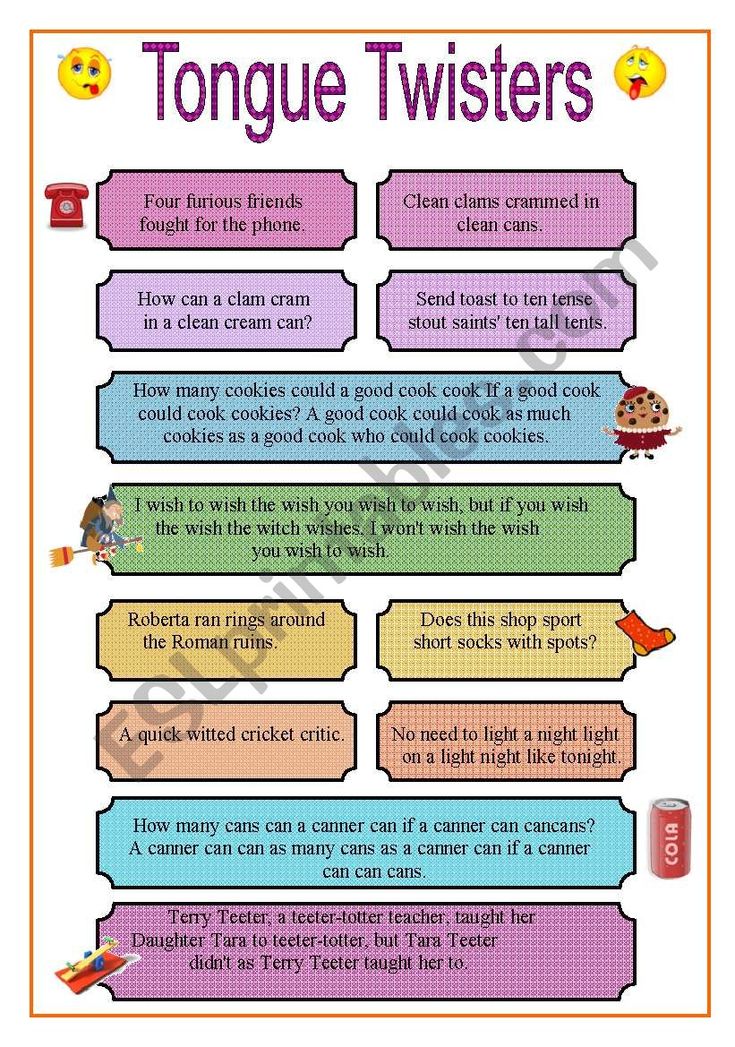 | Miss Smith's fish sauce shop rarely sells shells. |
| Sam's shop stocks short spotted socks. | Sam's store sells short socks with polka dots. |
| No shark shares swordfish steak. | No shark shares swordfish steak. |
| Sure, sir, the ship's sure shipshape, sir. | Of course, sir, the ship is really fine, sir. |
| She sells seashells on the seashore. The shells she sells are surely seashells. So if she sells shells on the seashore, I'm sure she sells seashore shells. | She sells seashells on the beach. The shells she sells are really sea shells. So if she sells seashells on the seashore, I'm sure she sells seashells on the seashore. |
The large list of tongue twisters that we have given is not even half of the existing ones.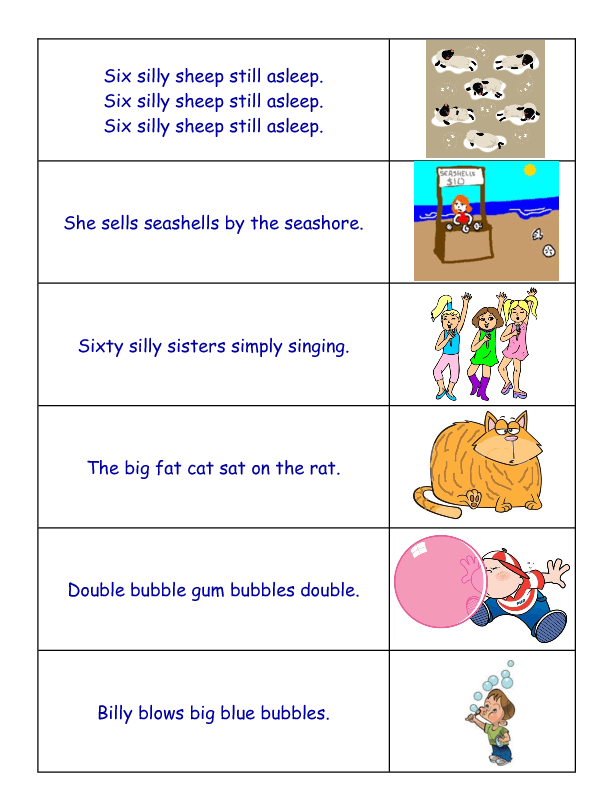


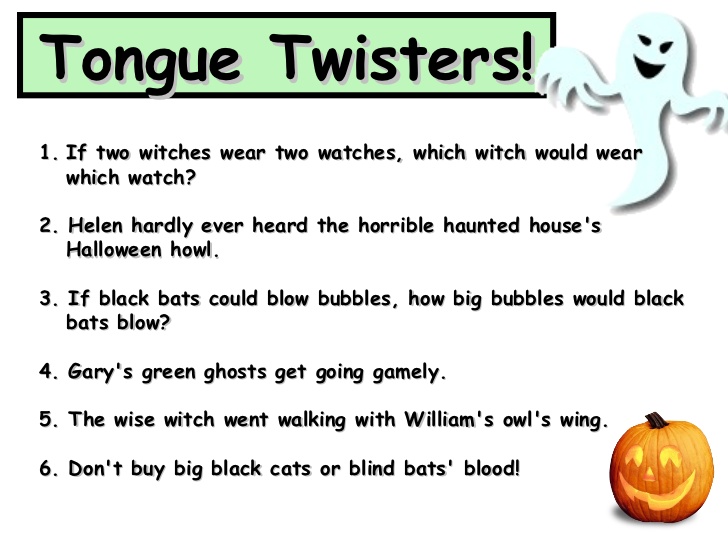 But a little bit of butter will make my dough better too. So Betty Botter better buy some better butter. (This tongue twister simultaneously trains the pronunciation of short vowels of the English language.)
But a little bit of butter will make my dough better too. So Betty Botter better buy some better butter. (This tongue twister simultaneously trains the pronunciation of short vowels of the English language.) 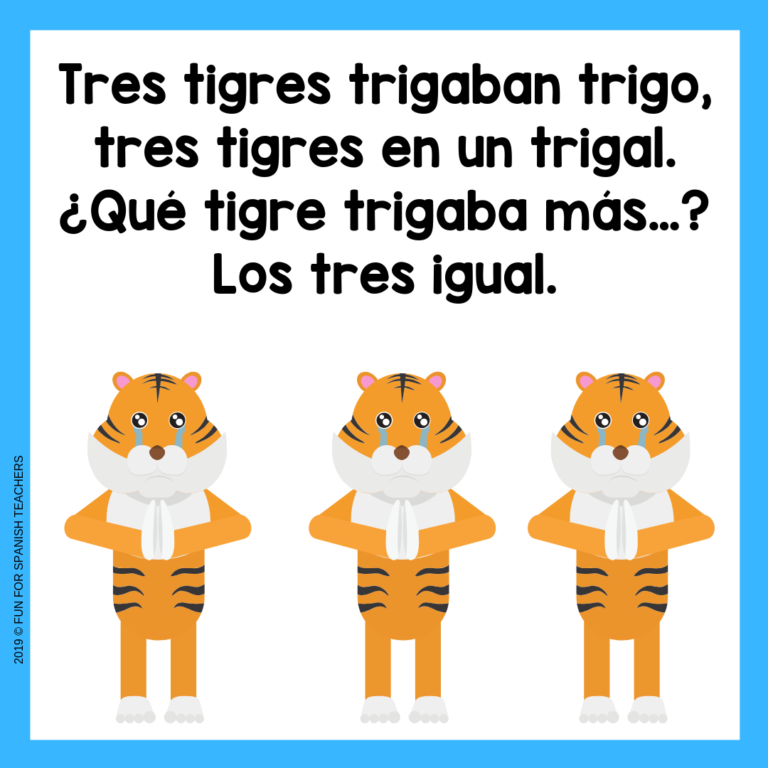


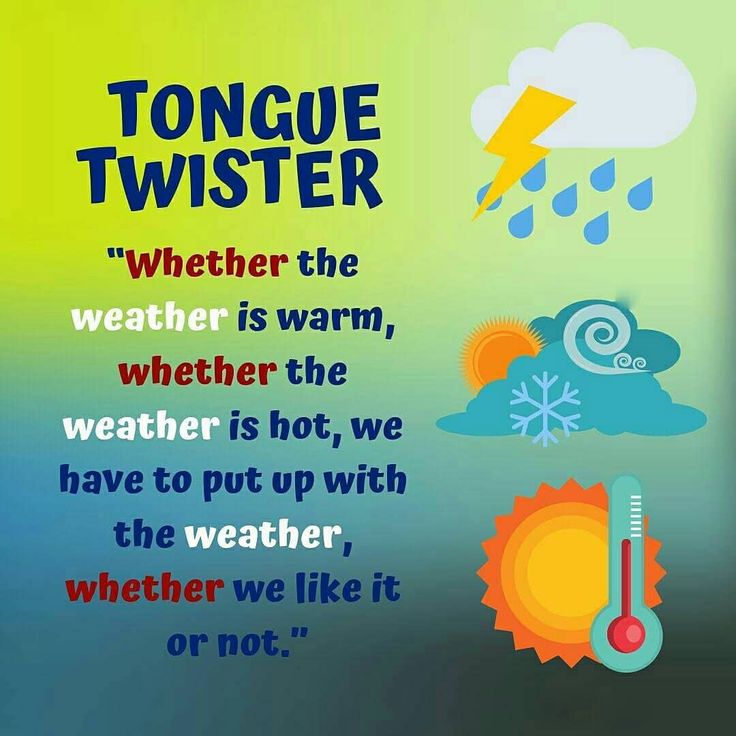

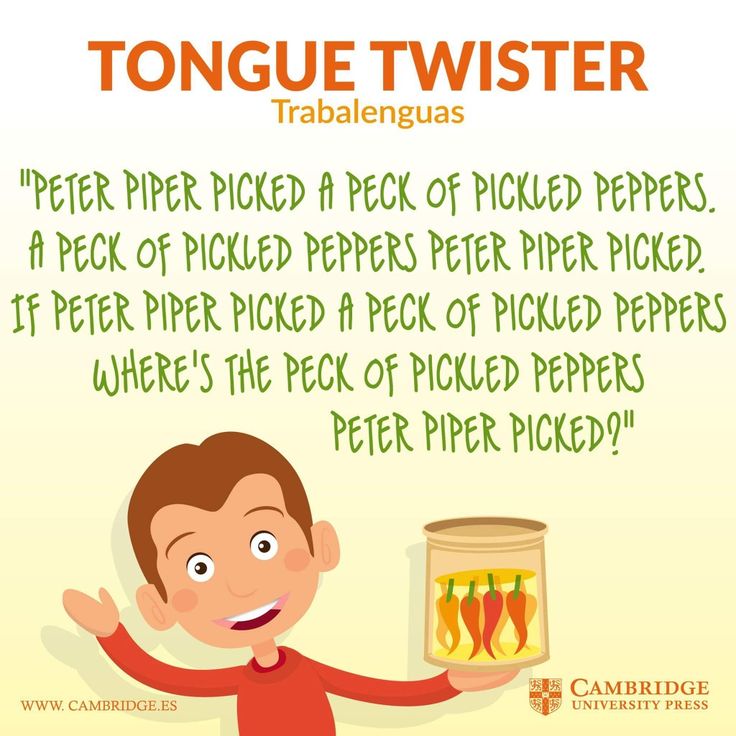
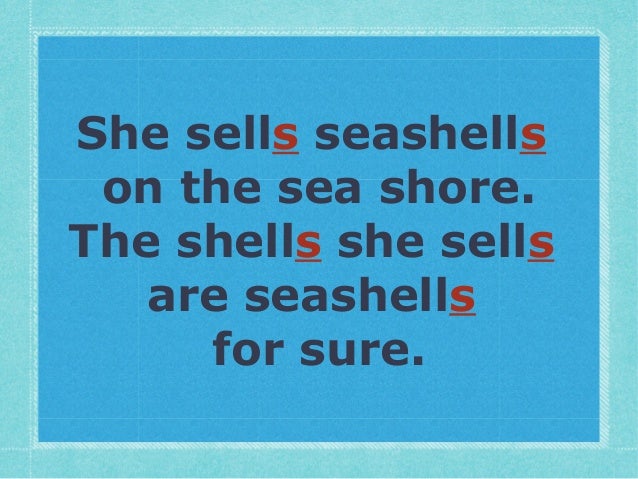
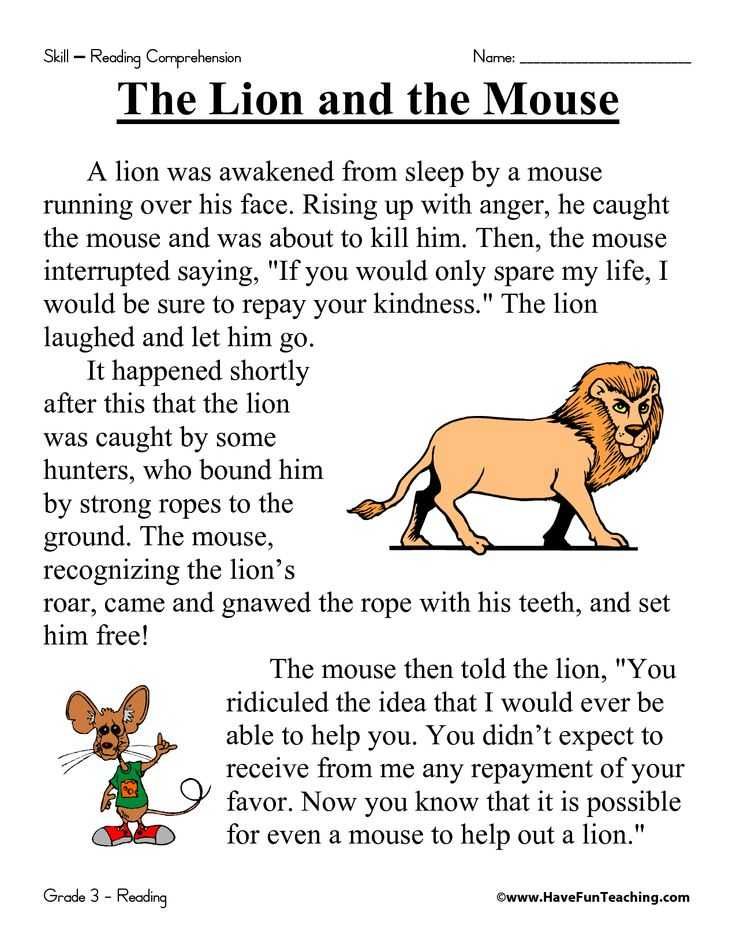
/pic4314753.jpg)
